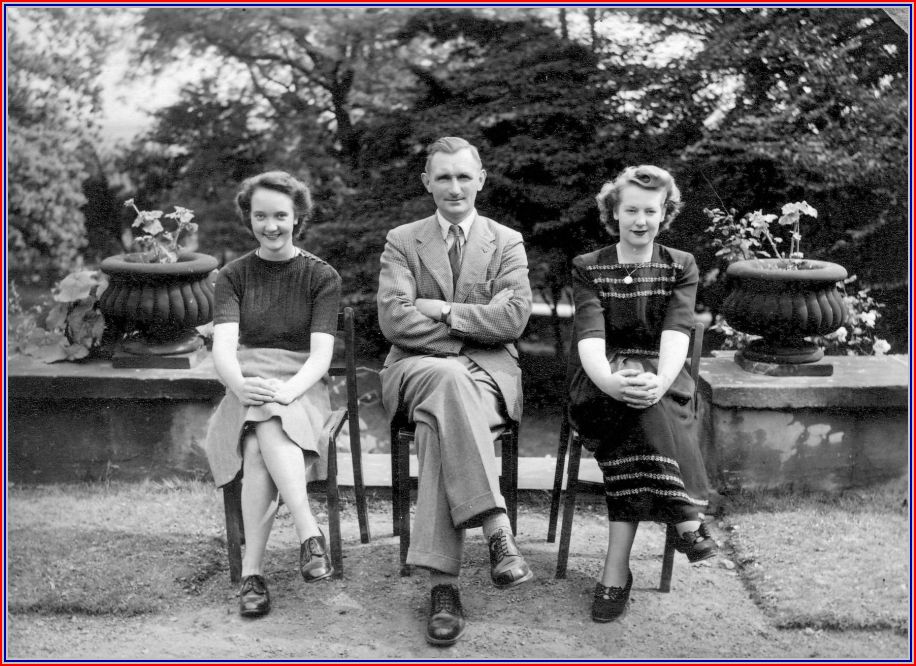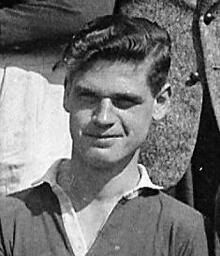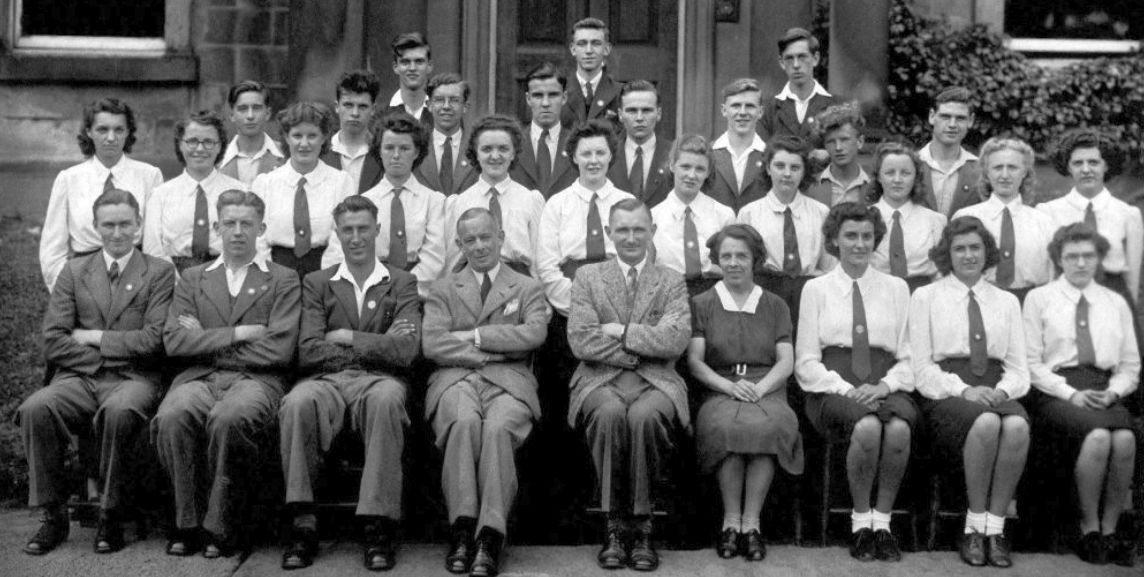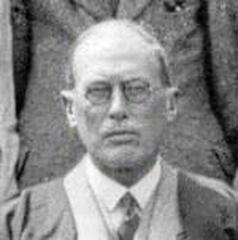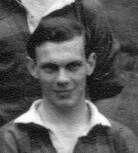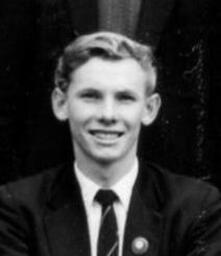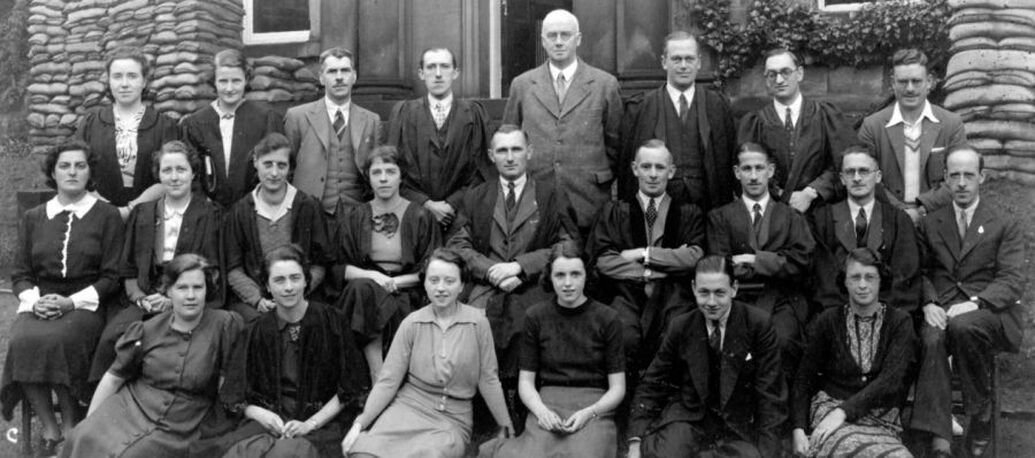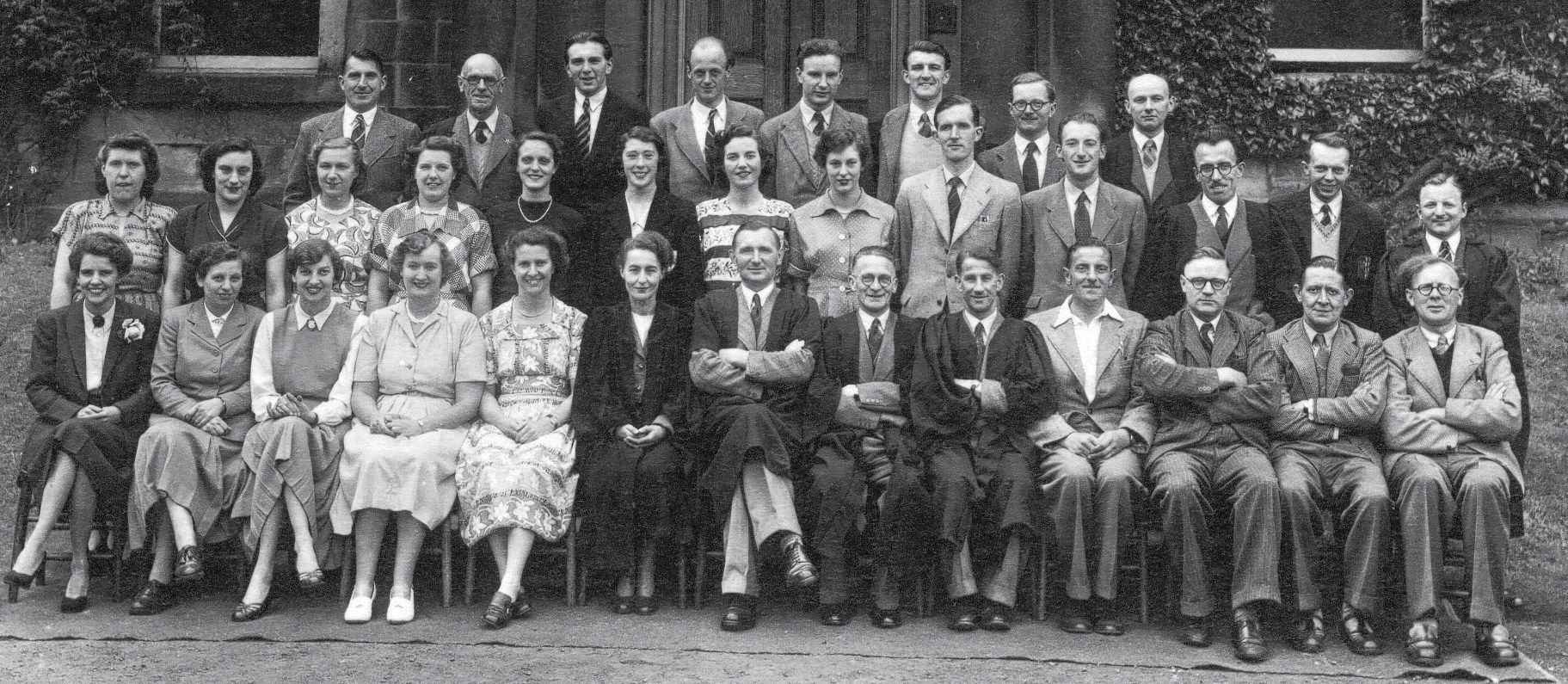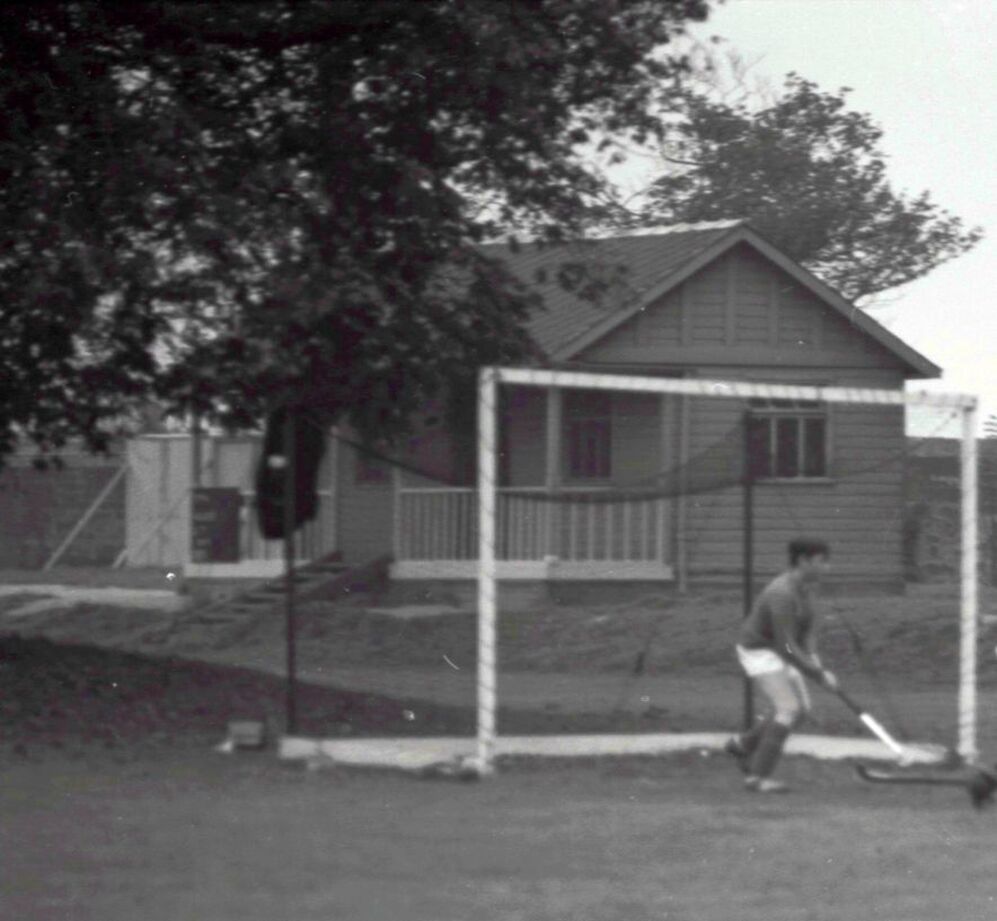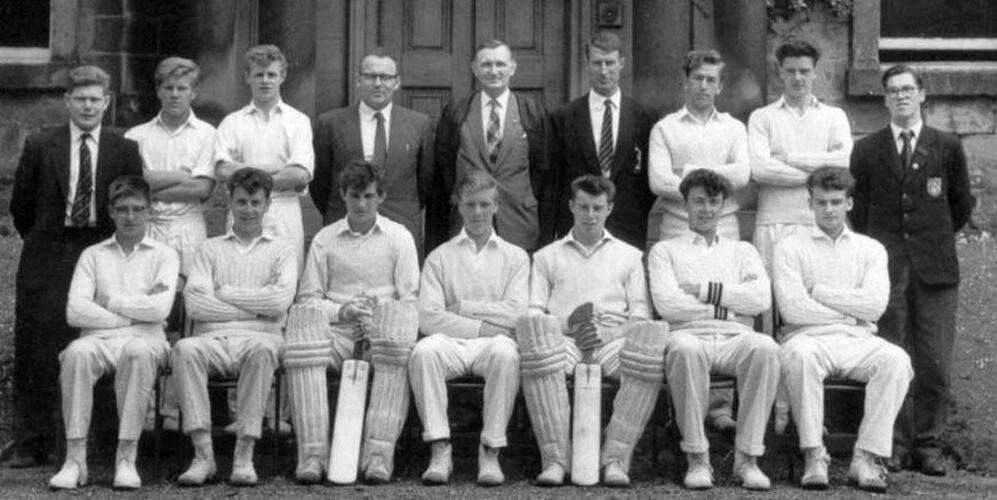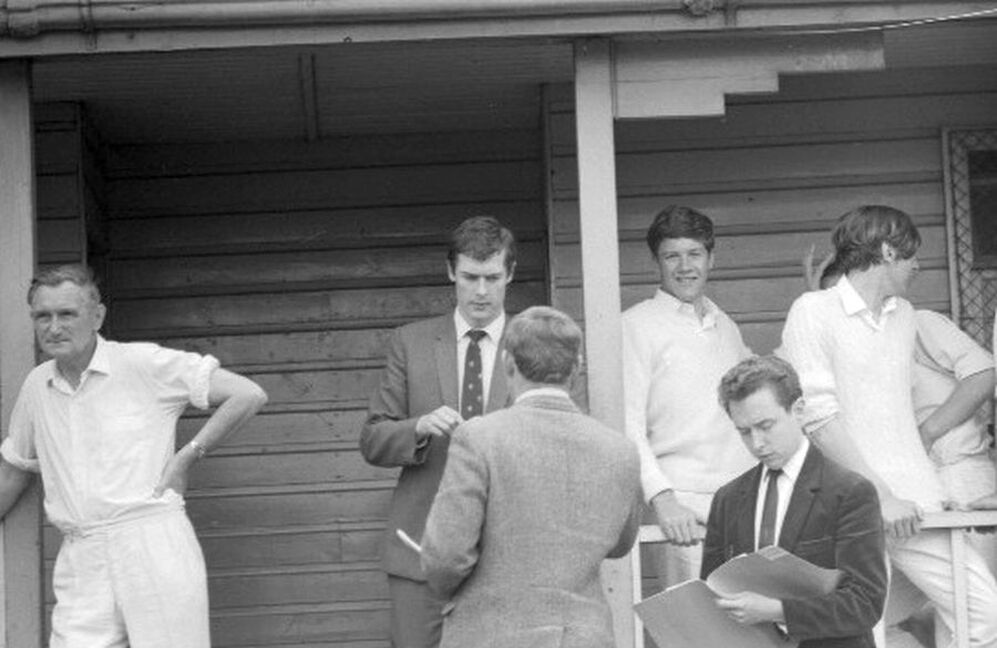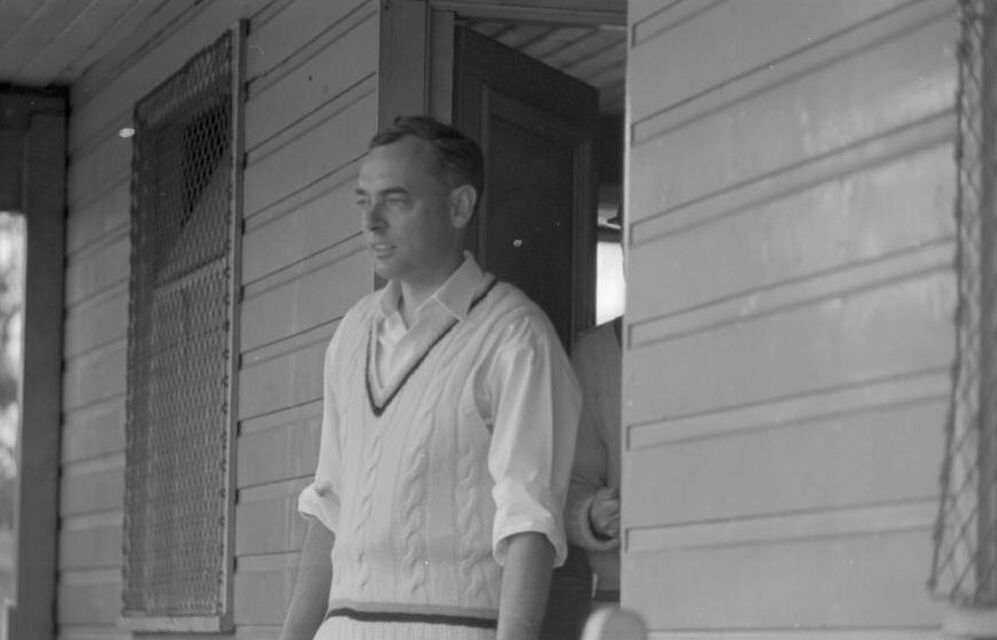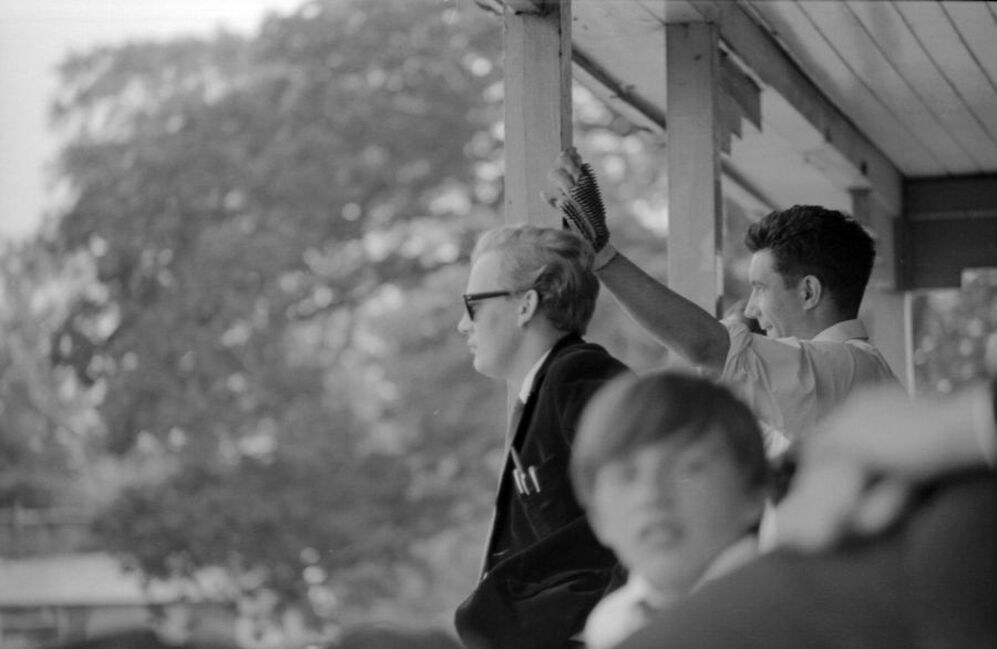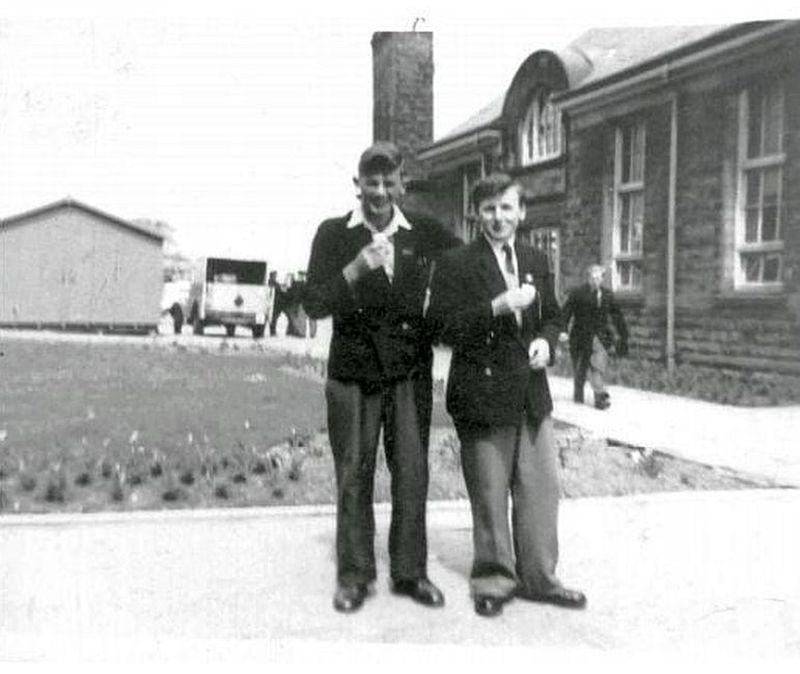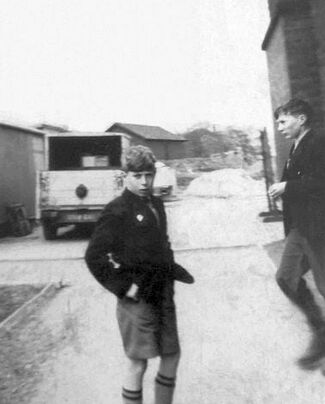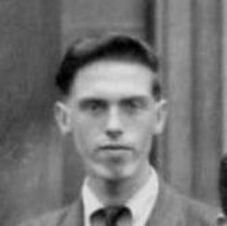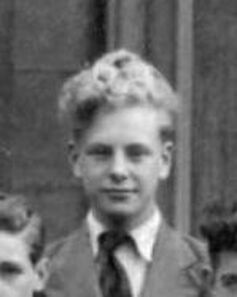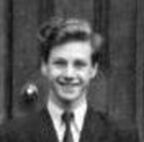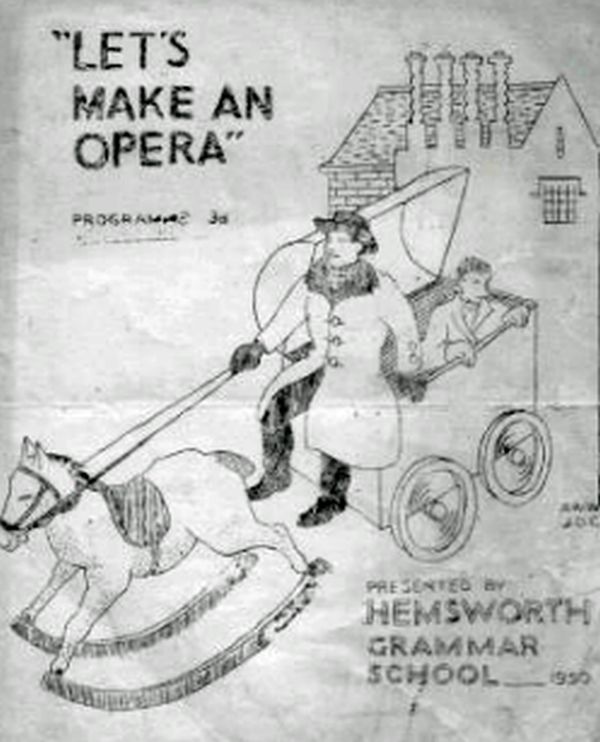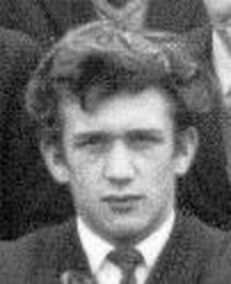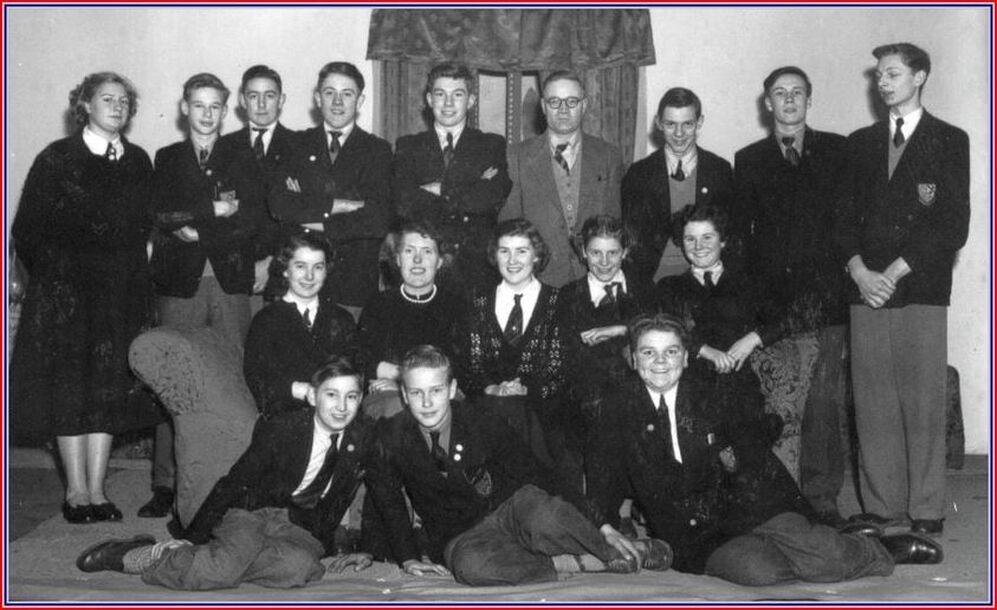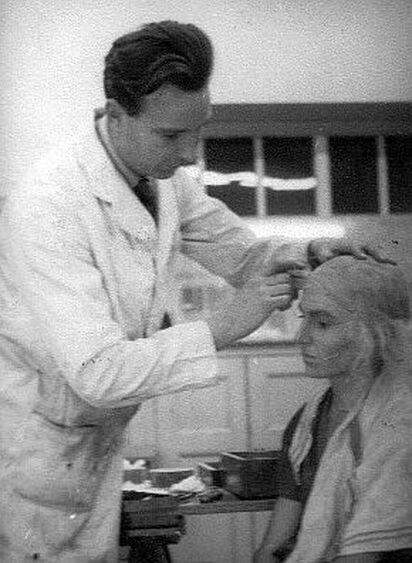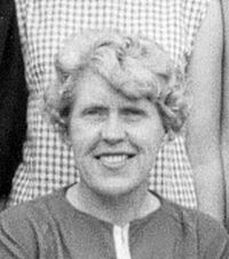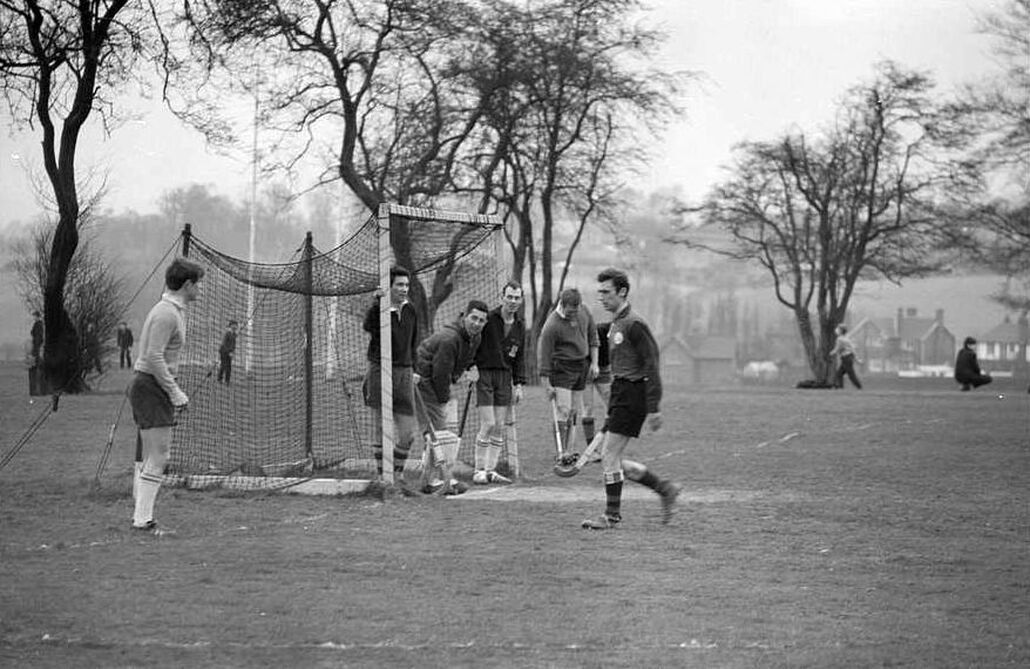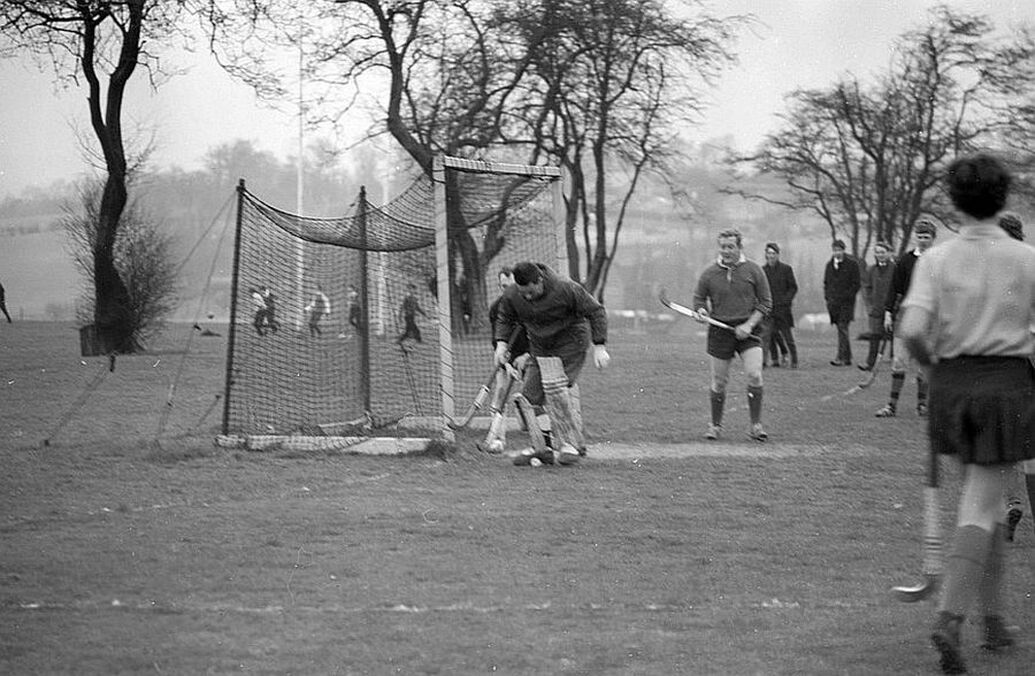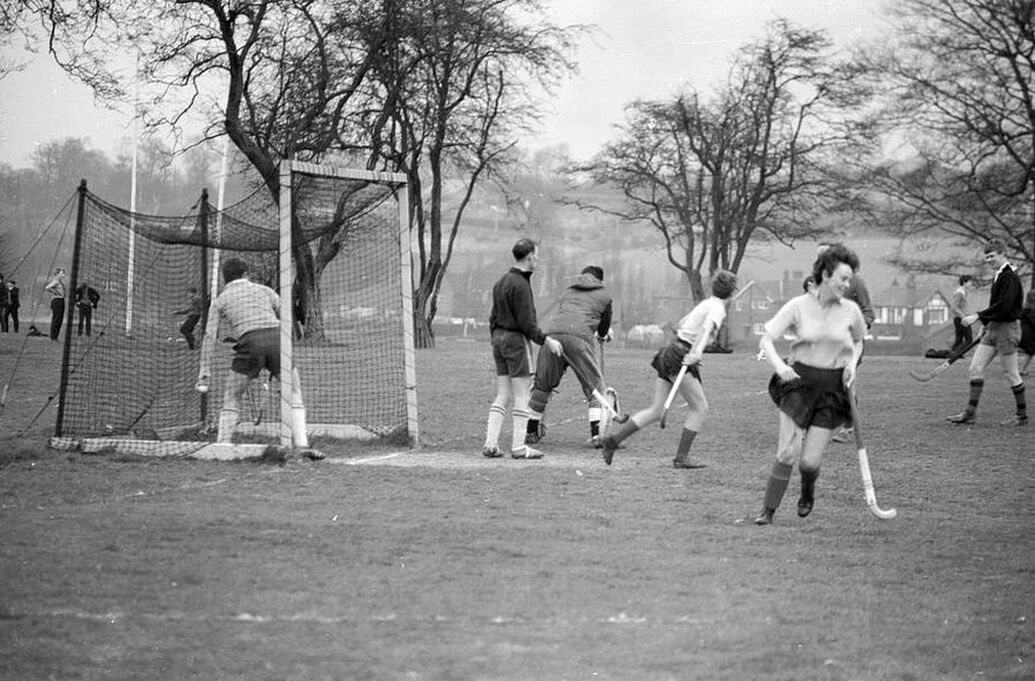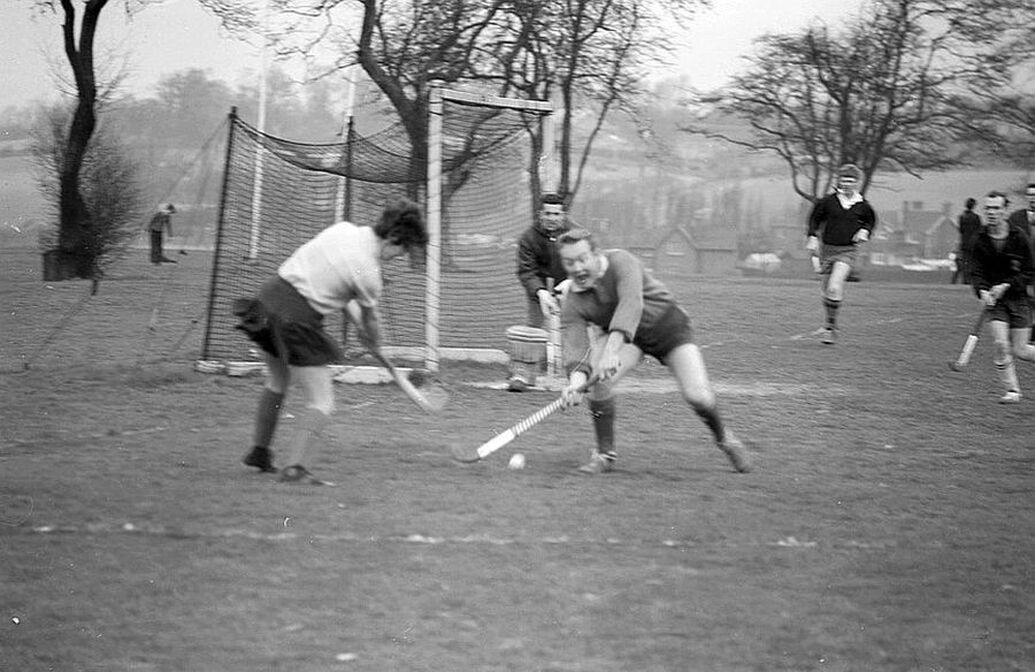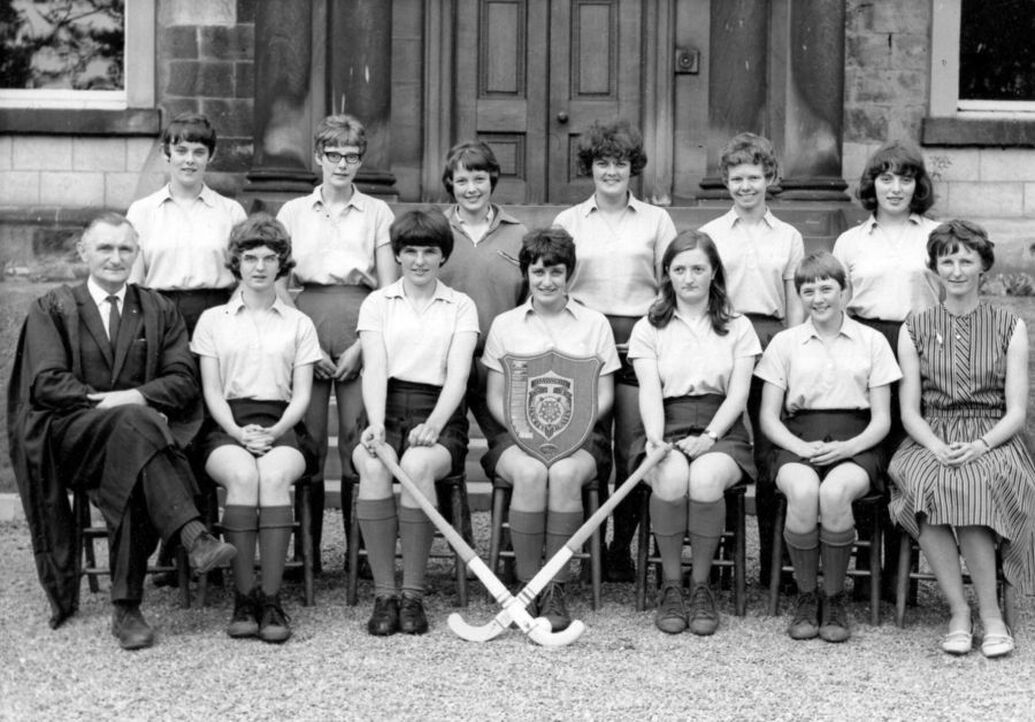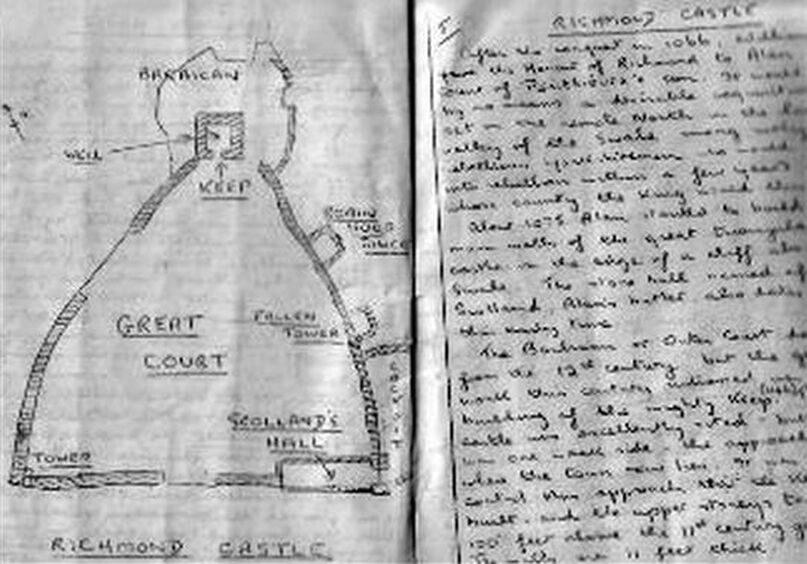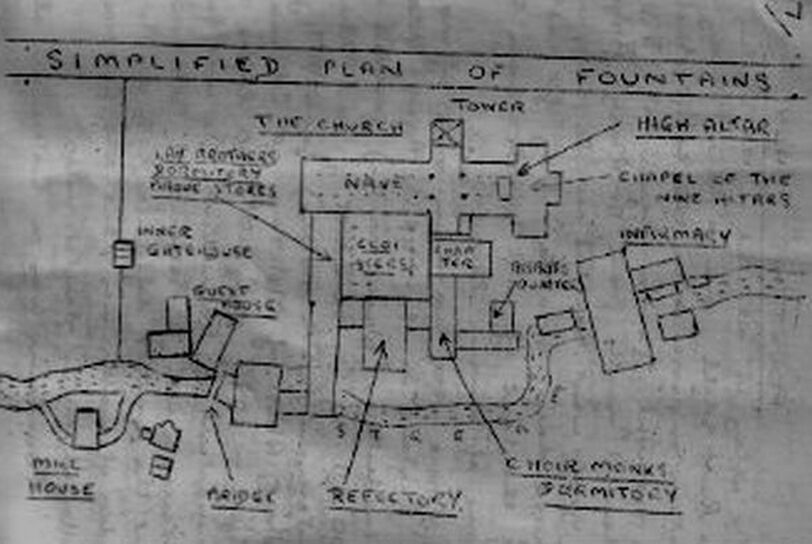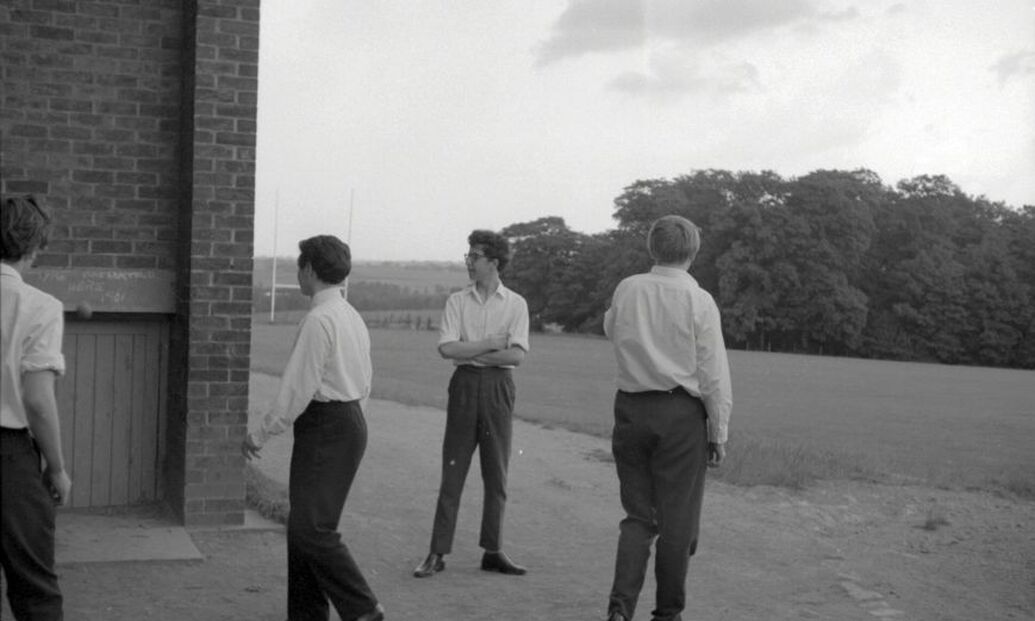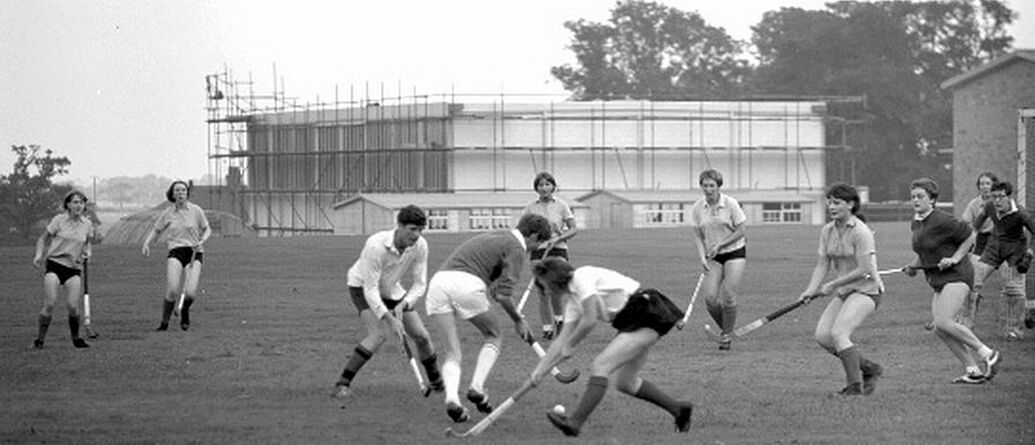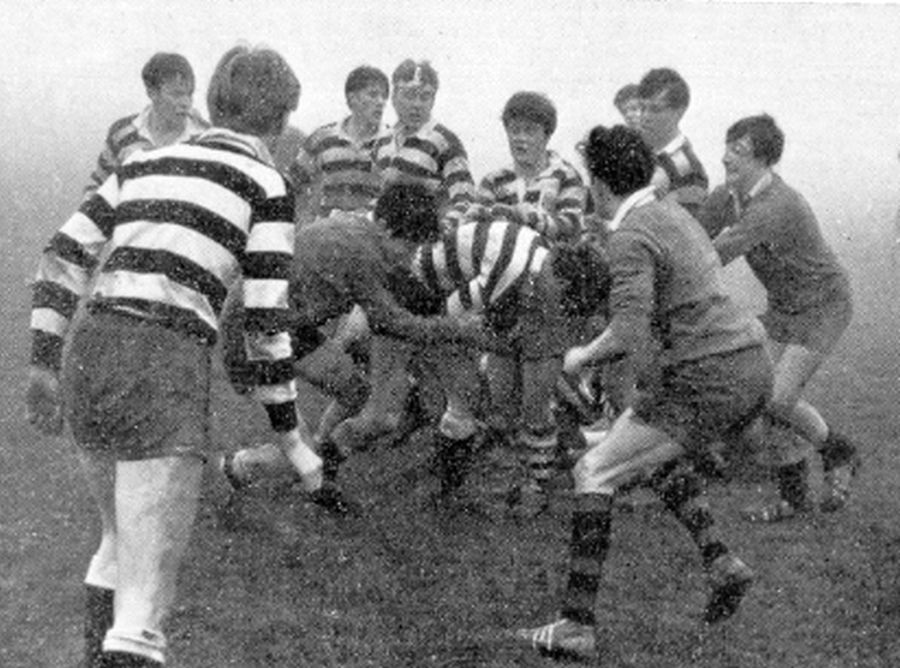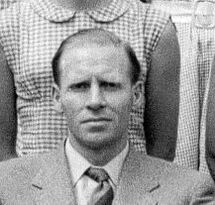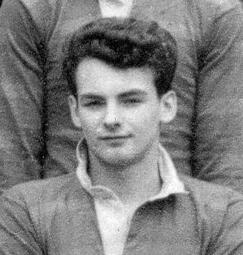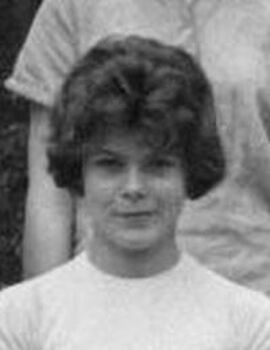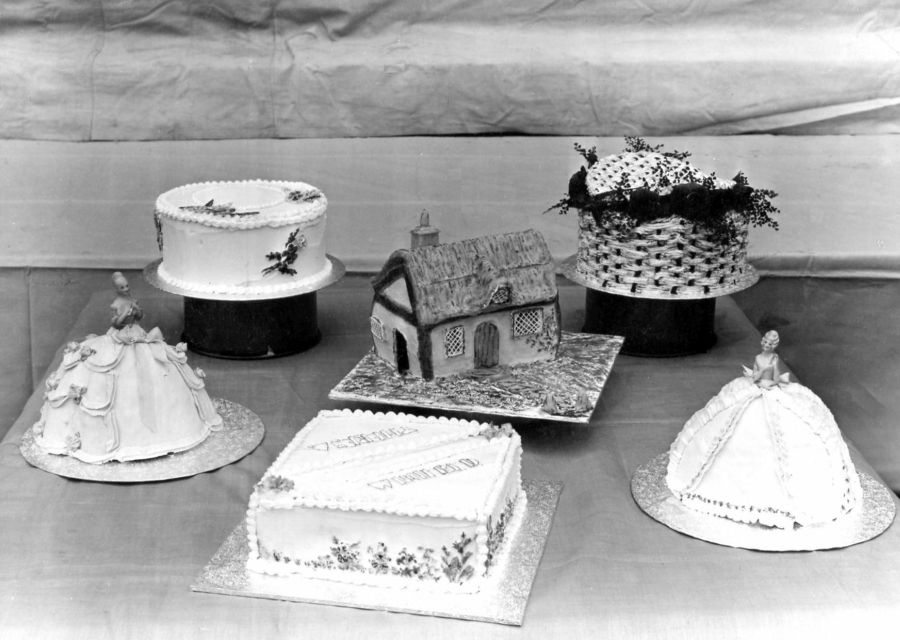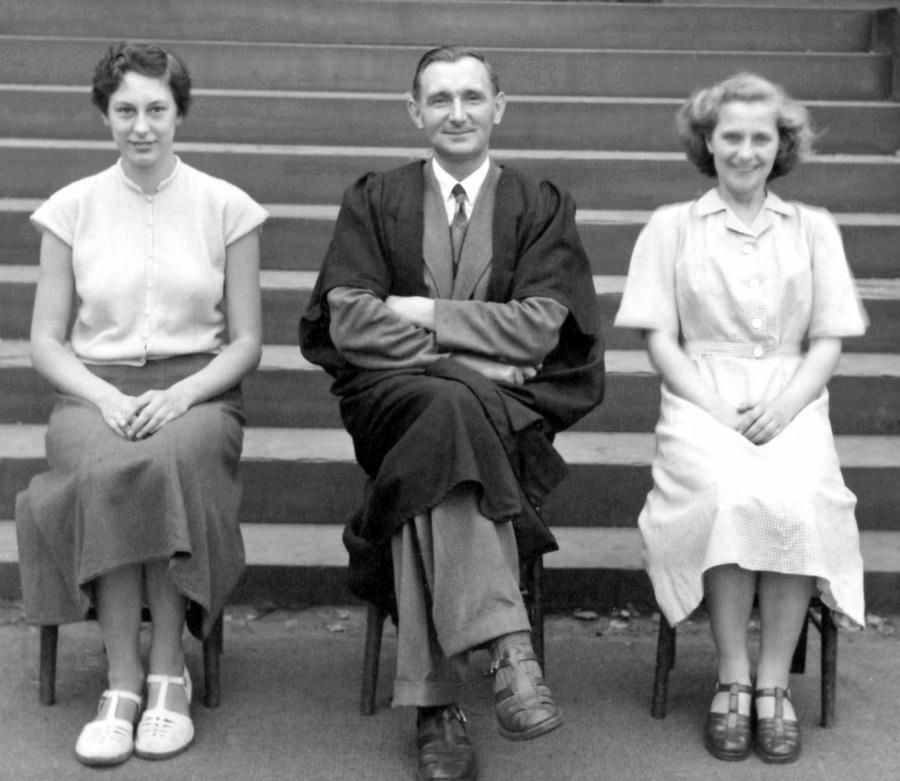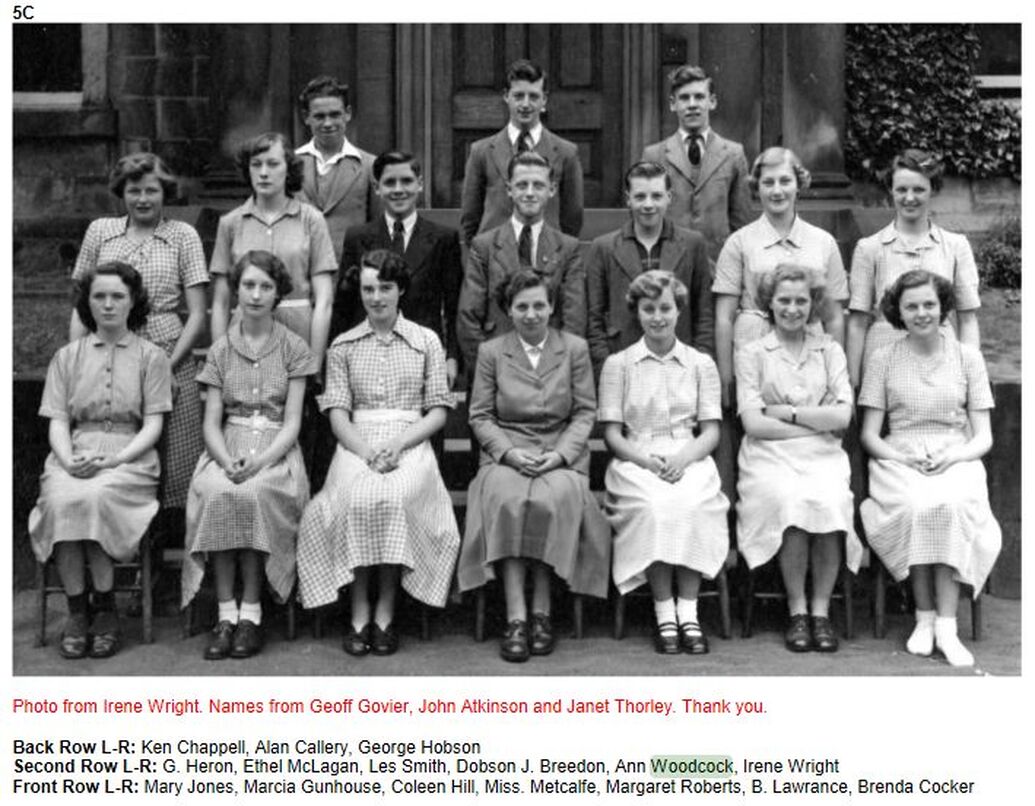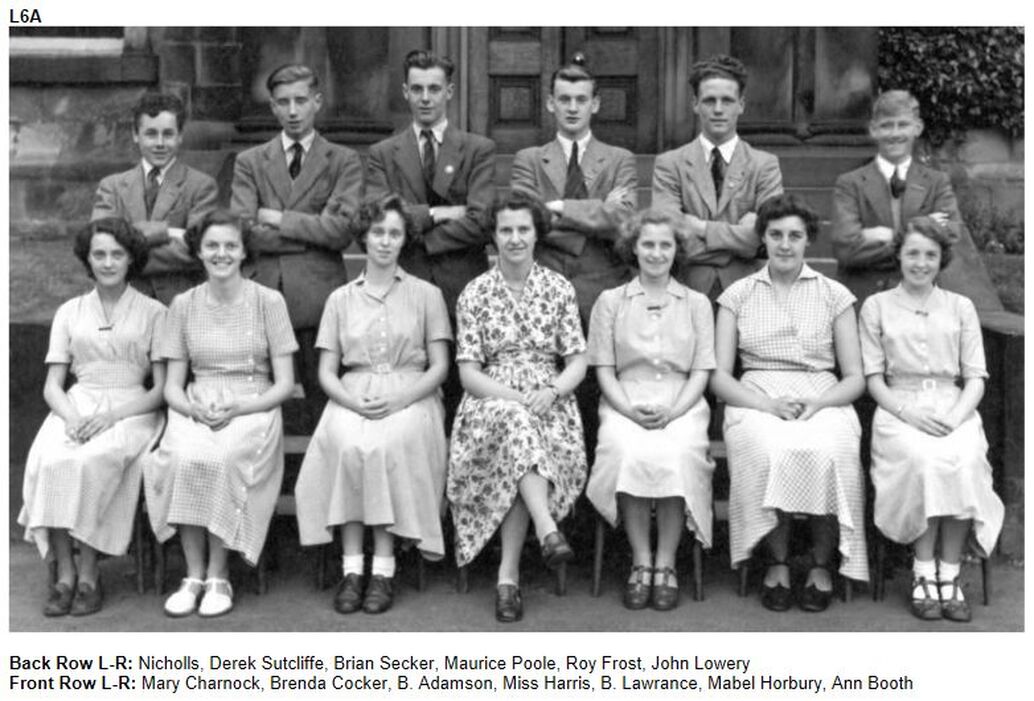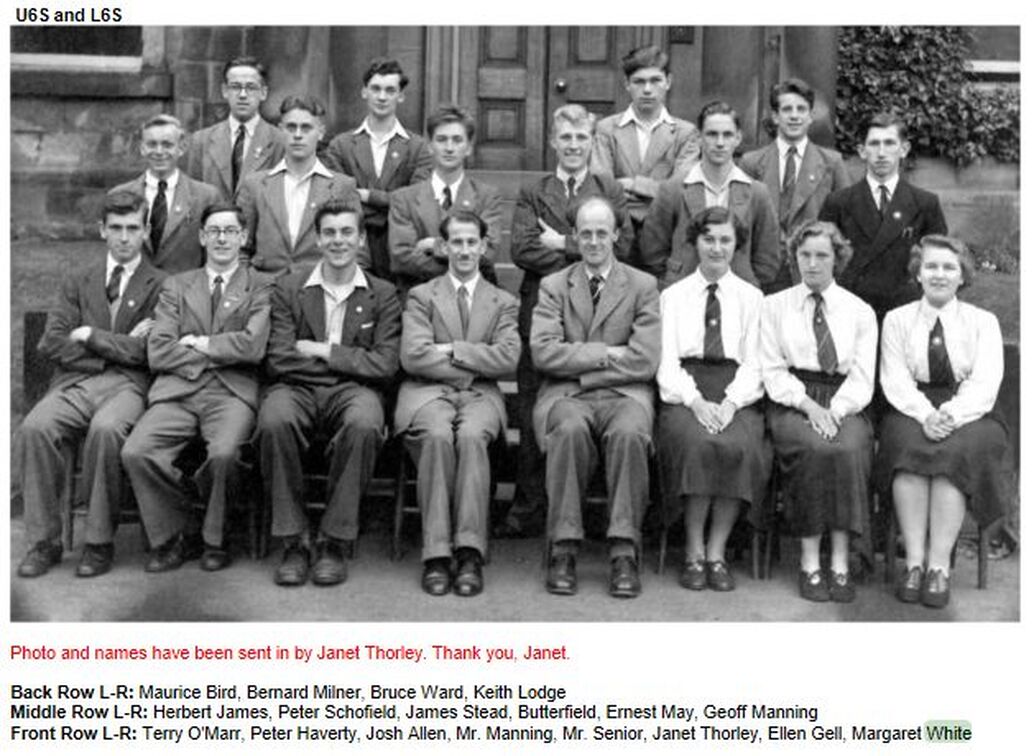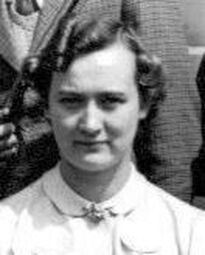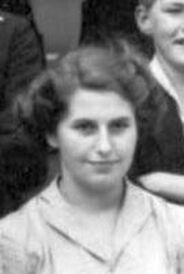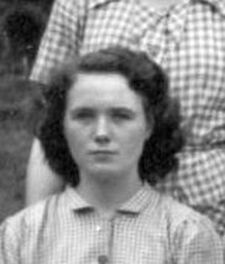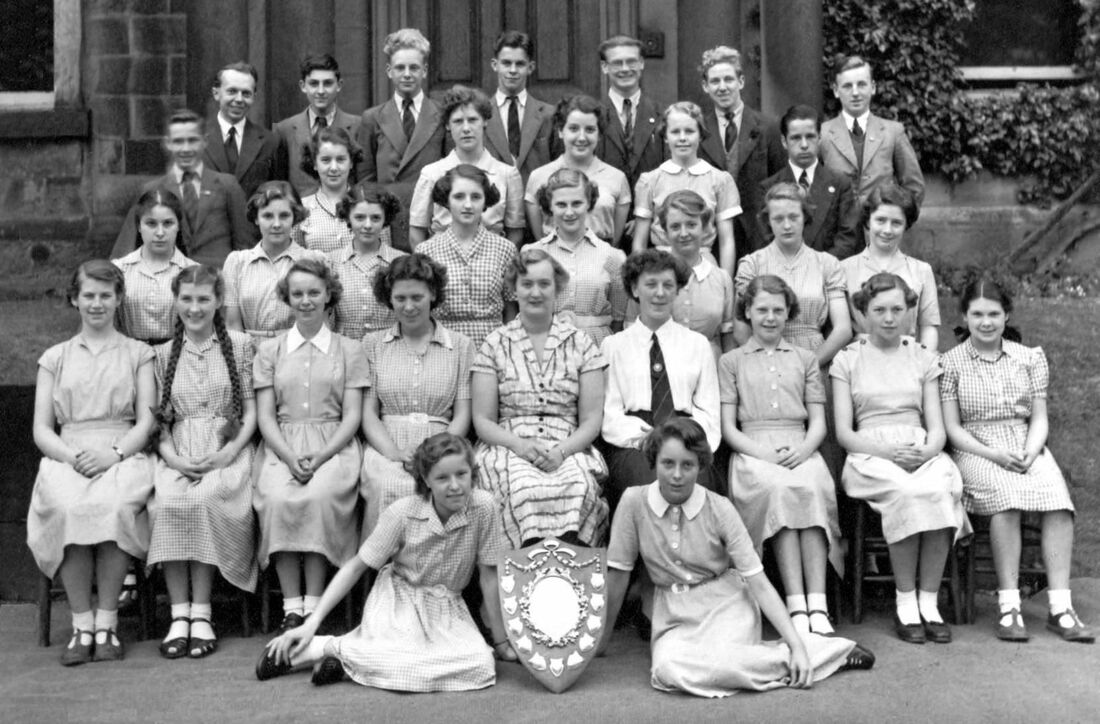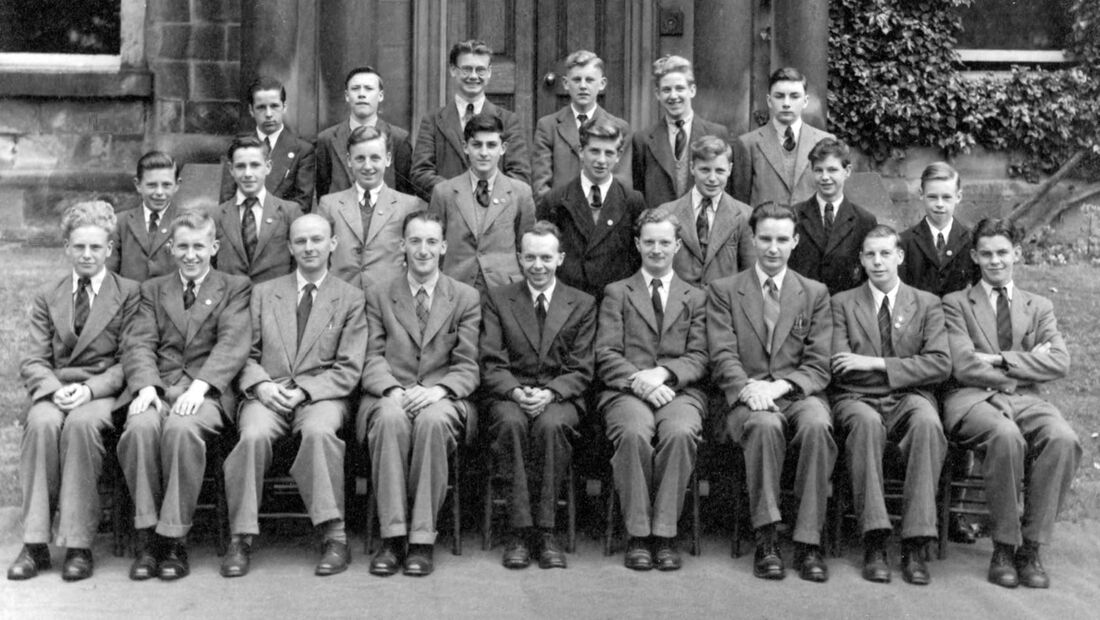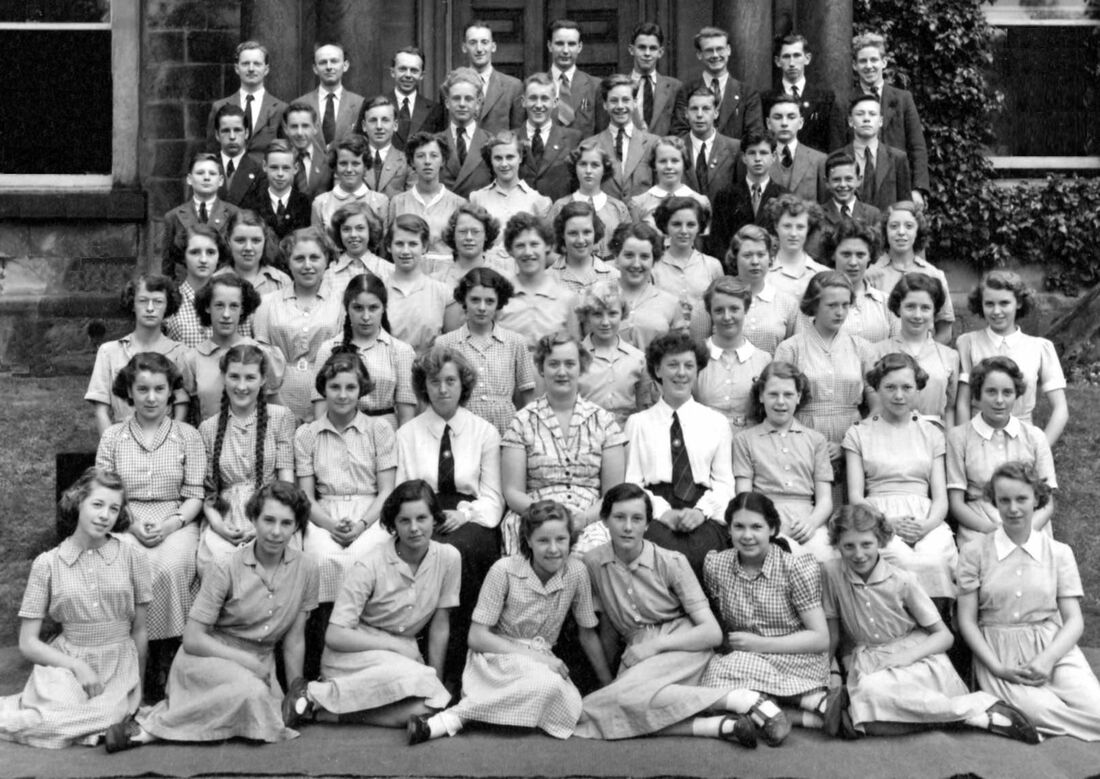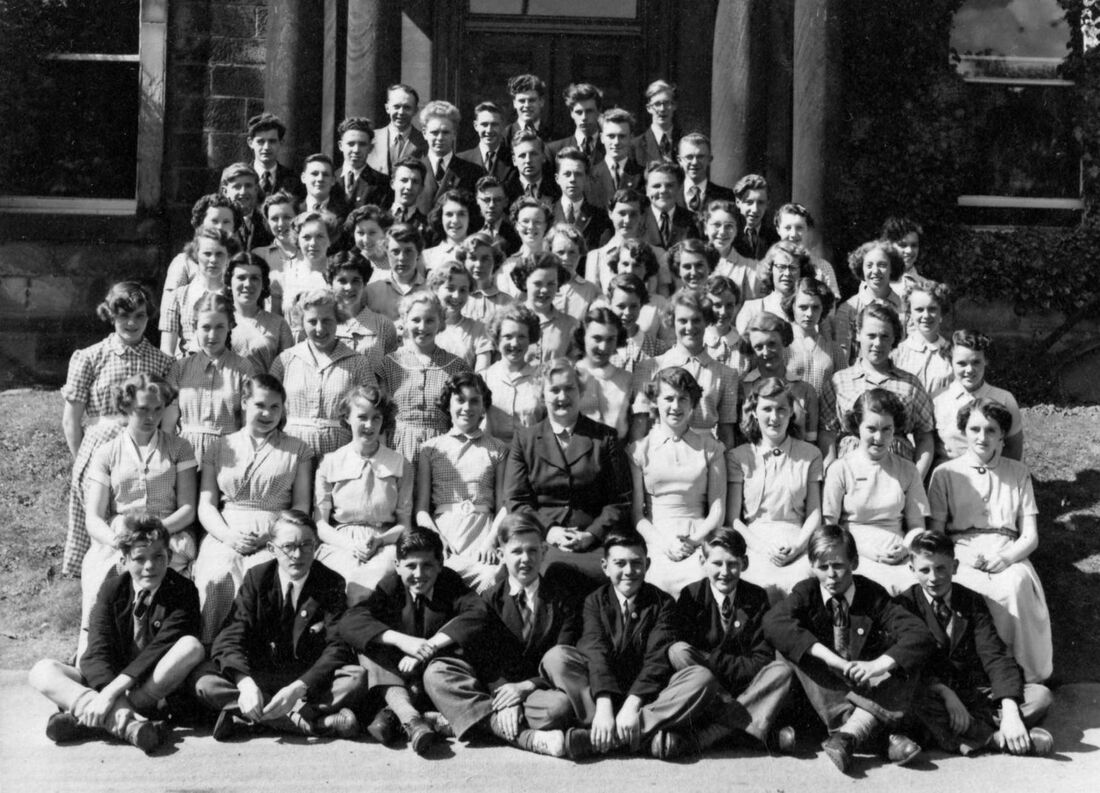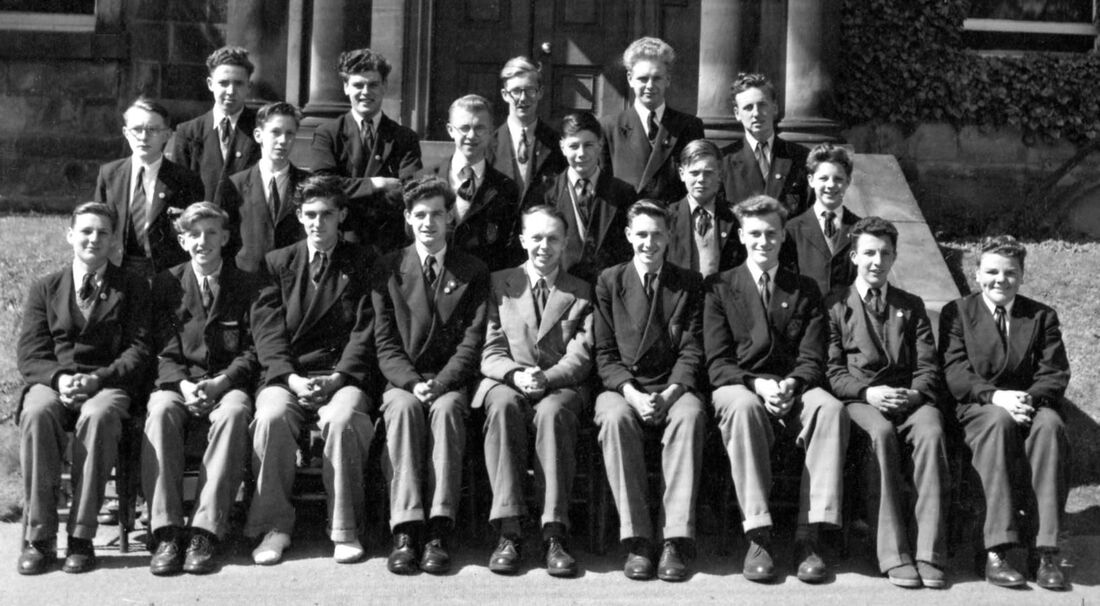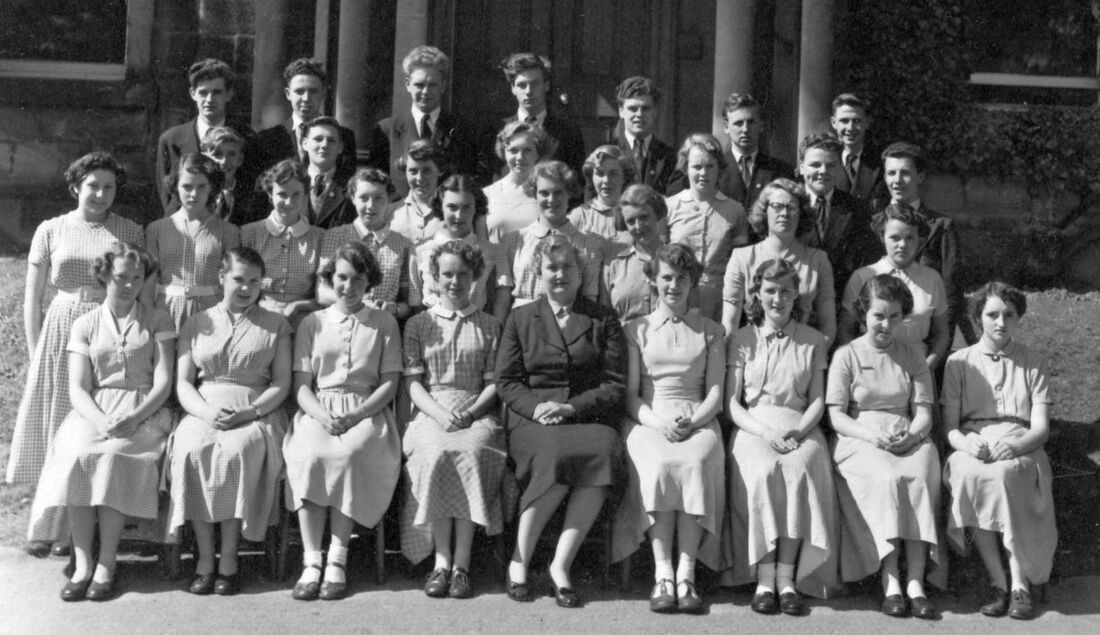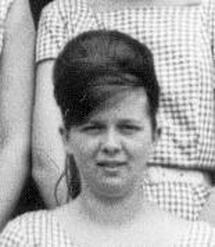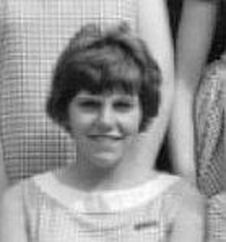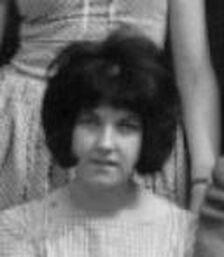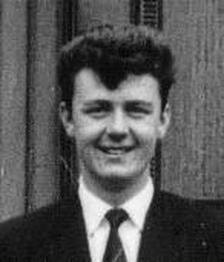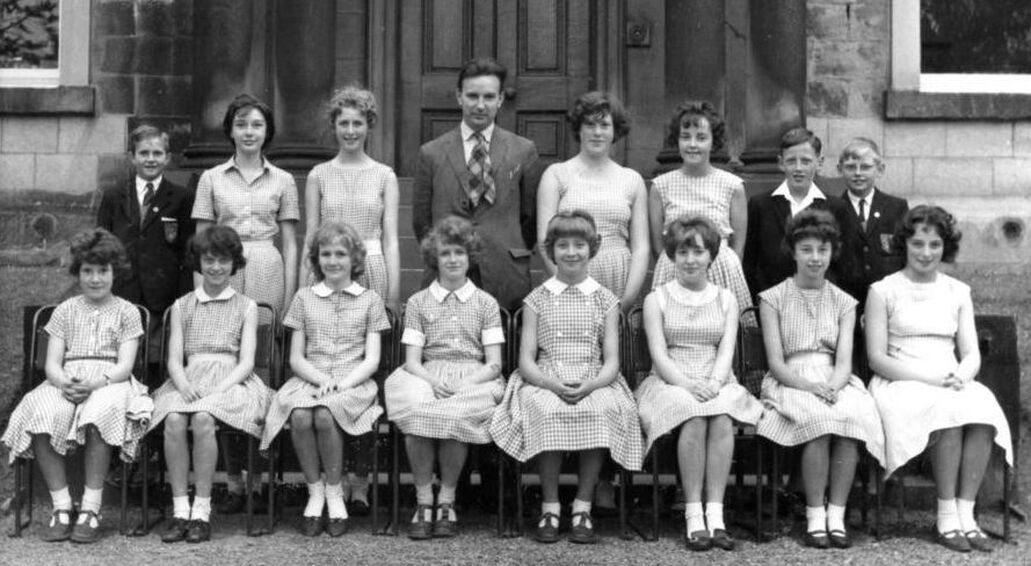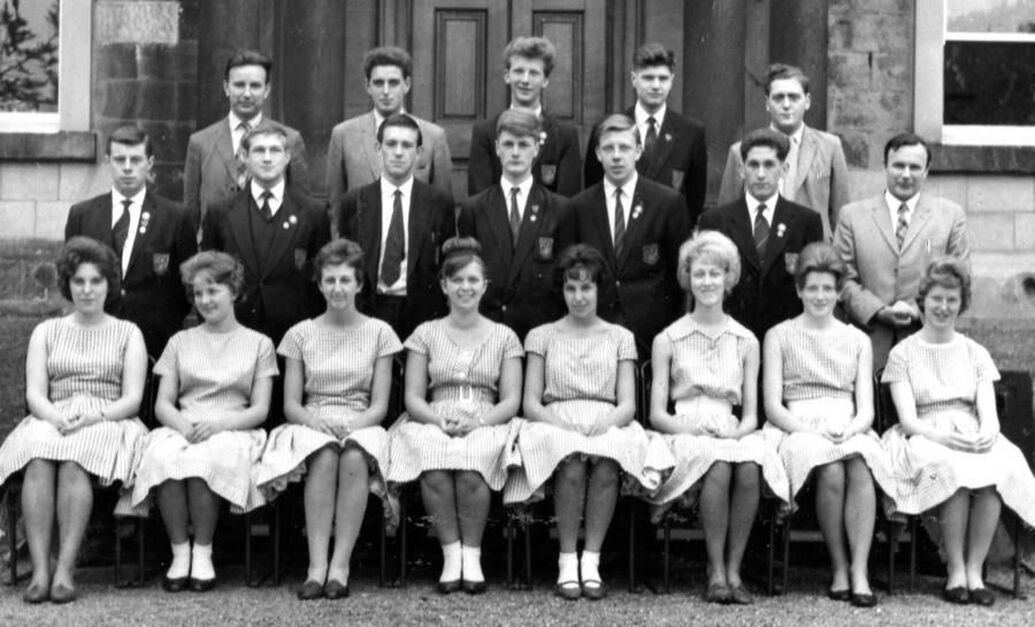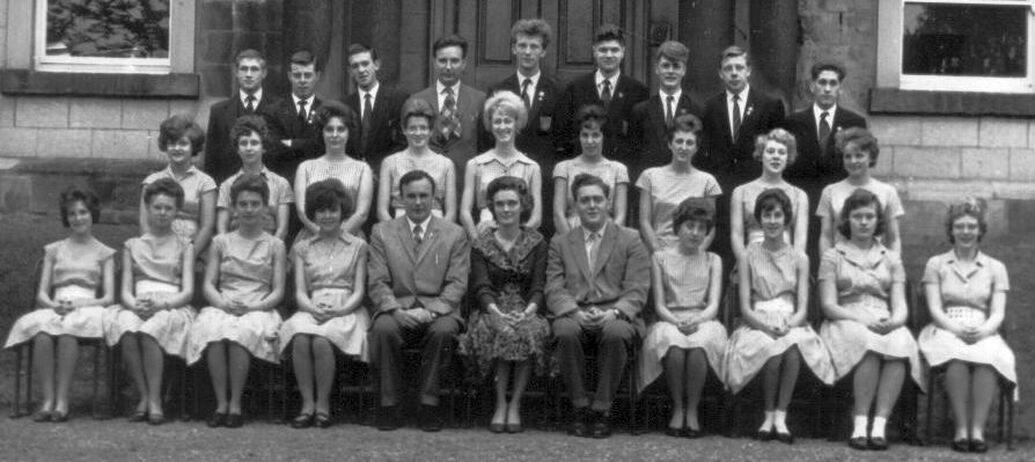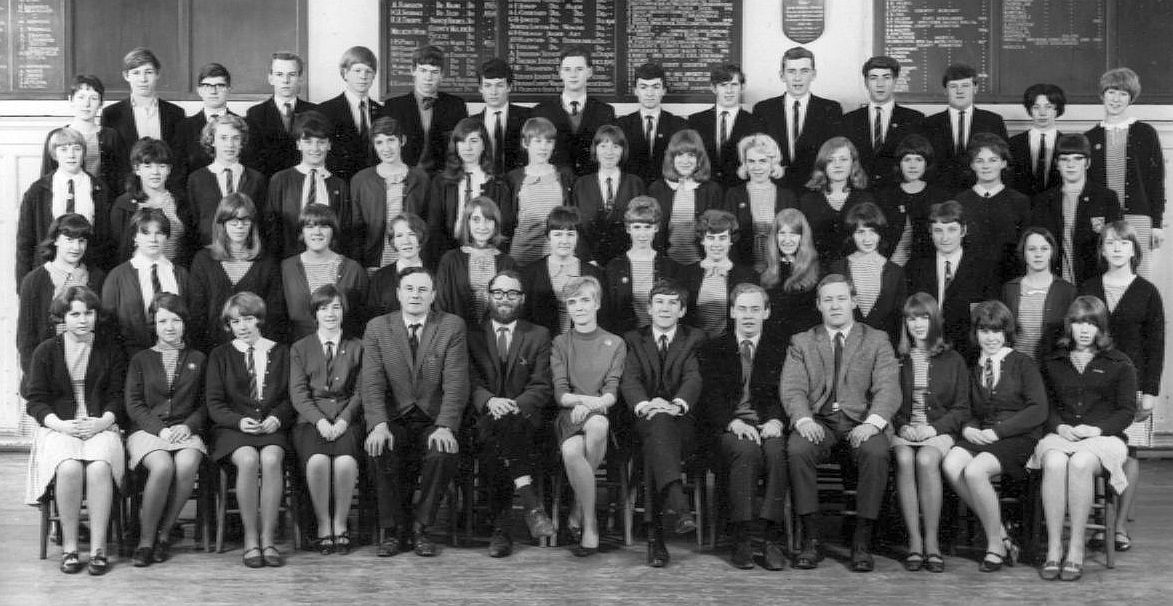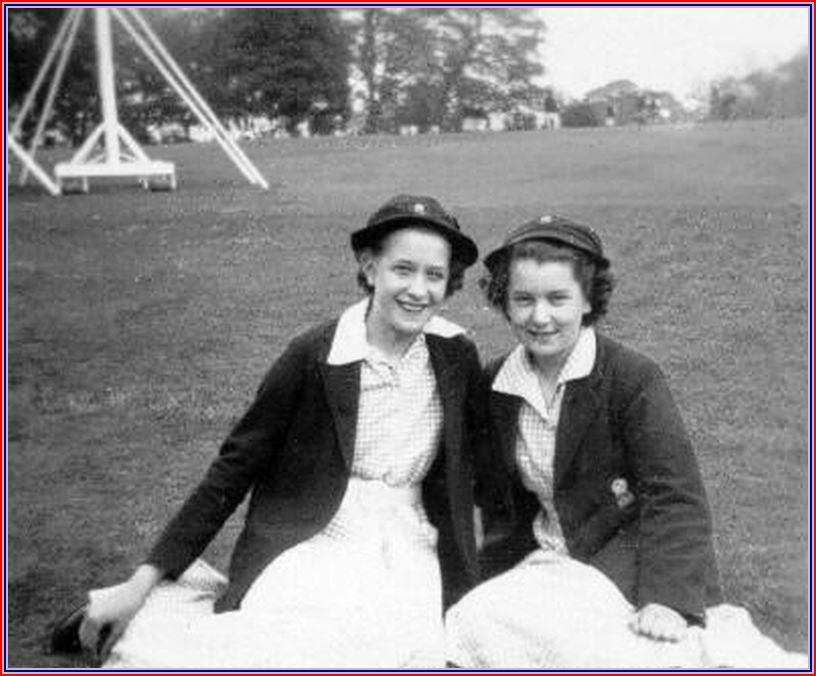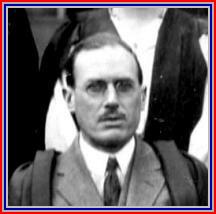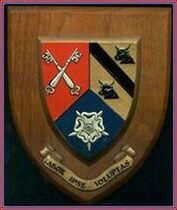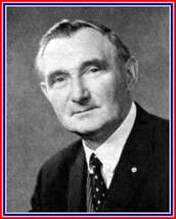A Personal View 4
Status:15 items
Status:15 items
Mr Hamilton and his secretaries, Marie Johnson (left) and Marjorie Oxley, in 1949
We had such beautiful grounds ("the glorious garden") which were eventually changed in the name of educational progress.
Table of Contents
|
1. Tempus Fugit
2. Free School Milk 1935 and later 3. A dynamic organisation 4. A happy Staff 5. The Cricket Pavilion |
6. A Play from 1950
7. On Rough Books 8. Stagehands and other helpers 9. The other side in 1950? 10. Miss Ward's Mapograph |
11. Images: Staff Hockey Match 1965-66
12. The History Group Visit 6th July 1961 13. The First Team Rugby pitch 14. Displays of pupils' work on Sports Days. 15. Examples of Music from some Speech Days |
1. Tempus fugit
Geoff Booth
"I lived in Fitzwilliam and went to H.G.S. from 1939 to 1945. I am becoming convinced that I am the sole survivor of that era. I have been checking the website for months and only contacted Sheila Kelsall and Dave McKenzie and it's quite scary, like calling out and not even getting an echo back! My name is Geoff Booth and I would dearly like to believe that there are more than ghosts out there."
Prefects 1944-45
Back Row L-R: Frank Noble, George Rogers, Young J.A.S
Third Row L-R: Tony Atkinson, Robin Batty, Reginald Brookes, Reginald Callaghan, Robinson, Cliff Hale, Ineson, Geoff Booth
Second Row L-R: Joyce Burton, Olive Mellor, Viva Wyatt, Betty Smart, Madge Green, Betty Hill, Marian Lakin, Dorothy Marks, Brenda Swinbank, Iris Ventom, Dorothy Wass
First Row L-R: Anthony Jagger, Joe Bailey, Leslie Tate, Mr. Crossland, Mr. Hamilton, Miss Shortridge, Cynthia Hemingway, Frances Hemingway, Joan Maw
Third Row L-R: Tony Atkinson, Robin Batty, Reginald Brookes, Reginald Callaghan, Robinson, Cliff Hale, Ineson, Geoff Booth
Second Row L-R: Joyce Burton, Olive Mellor, Viva Wyatt, Betty Smart, Madge Green, Betty Hill, Marian Lakin, Dorothy Marks, Brenda Swinbank, Iris Ventom, Dorothy Wass
First Row L-R: Anthony Jagger, Joe Bailey, Leslie Tate, Mr. Crossland, Mr. Hamilton, Miss Shortridge, Cynthia Hemingway, Frances Hemingway, Joan Maw
Dear Sheila,
After receiving your message I logged onto the website and was amazed at the wealth of info about people in my dim and distant past. I have photos and anecdotes which I will send for the archives. Despite all the years of experience that have passed I regard my years of tutelage under Messrs Hamilton, Crossland, Collette, Daddy Austin, Storer, Scourfield, Leonard (in that brilliantly striped blazer and white flannels) as being the first and lasting moulding of my young and malleable character. I must not leave out the ladies, Misses Bromley, Prince, Townsend, Shortridge, Harrison et al. The system embodying houses and teams, with discipline and loyalty was in such contrast to the systems of today. Thank you for contacting me, Sheila. I will be in touch with the photos etc later. Happy Days.
Best Regards
Geoff Booth (1939-45 Holgate)
After receiving your message I logged onto the website and was amazed at the wealth of info about people in my dim and distant past. I have photos and anecdotes which I will send for the archives. Despite all the years of experience that have passed I regard my years of tutelage under Messrs Hamilton, Crossland, Collette, Daddy Austin, Storer, Scourfield, Leonard (in that brilliantly striped blazer and white flannels) as being the first and lasting moulding of my young and malleable character. I must not leave out the ladies, Misses Bromley, Prince, Townsend, Shortridge, Harrison et al. The system embodying houses and teams, with discipline and loyalty was in such contrast to the systems of today. Thank you for contacting me, Sheila. I will be in touch with the photos etc later. Happy Days.
Best Regards
Geoff Booth (1939-45 Holgate)
2. Milk Rations 1935
Mr Jenkinson (Headmaster)
The scene:
A Governors’ Meeting at the School early in 1935.
Coun. G. Cooper:- “Headmaster, in your opinion are all the children in the School who are in need of milk actually receiving it whether they are able to pay for it or not?”
Headmaster:- “Since this matter was last discussed by the Governors, the County Authority has instructed that all children who are in receipt of a maintenance grant should receive school milk free of charge. That instruction is now being carried out, and there are now 121 children drinking free milk, and 72 children paying for milk. This is a large increase on previous numbers.”
Coun. G. Cooper:- “In view of the lack of medical evidence, are you satisfied that all the children who need milk are receiving it?”
Headmaster:- “Yes, I think that all the children who might want milk and cannot afford to pay for it are being dealt with under the maintenance grants.”
Coun. A.S. Madeley:- “Do you decide who is to have school milk or not?”
Headmaster:- “It is not left to my discretion to issue milk to children whom I might think are in need of it.”
The general agreement:- The system now in operation should be continued, and a record be made of this decision by the Clerk, Mr. Charles Crossley.
The supply of milk to the pupils at HGS was part of a fairly new national phenomenon about which the Hemsworth participants in its issue were ill at ease and without any firm guidance as to their roles. The Headmaster evidently was reluctant to accept the sole responsibility of selecting those who should receive free school milk, and it is not made clear in the records as to who should have had the final say in the matter.
Mr. Jenkinson had written a letter of request to the Education Authority asking if an additional maid might be employed at the school owing to the extra work entailed by the serving of milk to the students. This request was firmly denied, with Mr. J.H. Hallam pointing out that far more children in the elementary schools received milk, and the work there was carried out without extra assistance. Mr. Jenkinson was reluctant to take the members of his Staff from their duties in order to serve out milk to the children, and in addition claimed that the work of the elementary schools would suffer if their members of staff had to serve milk to the children. These were the days before supermarkets and serve-yourself selections, when adults still felt obliged to be in charge of the distribution of the bottles of milk.
Sheila
A Governors’ Meeting at the School early in 1935.
Coun. G. Cooper:- “Headmaster, in your opinion are all the children in the School who are in need of milk actually receiving it whether they are able to pay for it or not?”
Headmaster:- “Since this matter was last discussed by the Governors, the County Authority has instructed that all children who are in receipt of a maintenance grant should receive school milk free of charge. That instruction is now being carried out, and there are now 121 children drinking free milk, and 72 children paying for milk. This is a large increase on previous numbers.”
Coun. G. Cooper:- “In view of the lack of medical evidence, are you satisfied that all the children who need milk are receiving it?”
Headmaster:- “Yes, I think that all the children who might want milk and cannot afford to pay for it are being dealt with under the maintenance grants.”
Coun. A.S. Madeley:- “Do you decide who is to have school milk or not?”
Headmaster:- “It is not left to my discretion to issue milk to children whom I might think are in need of it.”
The general agreement:- The system now in operation should be continued, and a record be made of this decision by the Clerk, Mr. Charles Crossley.
The supply of milk to the pupils at HGS was part of a fairly new national phenomenon about which the Hemsworth participants in its issue were ill at ease and without any firm guidance as to their roles. The Headmaster evidently was reluctant to accept the sole responsibility of selecting those who should receive free school milk, and it is not made clear in the records as to who should have had the final say in the matter.
Mr. Jenkinson had written a letter of request to the Education Authority asking if an additional maid might be employed at the school owing to the extra work entailed by the serving of milk to the students. This request was firmly denied, with Mr. J.H. Hallam pointing out that far more children in the elementary schools received milk, and the work there was carried out without extra assistance. Mr. Jenkinson was reluctant to take the members of his Staff from their duties in order to serve out milk to the children, and in addition claimed that the work of the elementary schools would suffer if their members of staff had to serve milk to the children. These were the days before supermarkets and serve-yourself selections, when adults still felt obliged to be in charge of the distribution of the bottles of milk.
Sheila
Terry McCroakam
1950s: The Prefects used to be on Milk Duty outside the Black Shed (boys' changing rooms) at break when I was there.
1950s: The Prefects used to be on Milk Duty outside the Black Shed (boys' changing rooms) at break when I was there.
Peter Cooper
That’s as I remember too, Terry. There were tables at the side of the Black Shed opposite the Dining Hall entrance. The milk was delivered there in crates each morning and I think distribution was supervised by Prefects at first break.
That’s as I remember too, Terry. There were tables at the side of the Black Shed opposite the Dining Hall entrance. The milk was delivered there in crates each morning and I think distribution was supervised by Prefects at first break.
3. A dynamic organisation
HGS Staff 1939-40
Back Row L-R: Miss Walker, Miss Garman, Mr. Waters, Mr. Scourfield, Mr. Austin, Mr. Storer, Mr. Hyde, Mr. Nelson
Middle Row L-R: Miss Harrison, Miss Bromley, Miss Prince, Miss Shortridge, Mr. Hamilton, Mr. Crossland, Mr. Manning, Mr.
Collette, Mr. Hamilton (Art)
Front Row L-R: 1, Miss Kenward, Miss. Euler, 4, 5, Miss Townsend
Middle Row L-R: Miss Harrison, Miss Bromley, Miss Prince, Miss Shortridge, Mr. Hamilton, Mr. Crossland, Mr. Manning, Mr.
Collette, Mr. Hamilton (Art)
Front Row L-R: 1, Miss Kenward, Miss. Euler, 4, 5, Miss Townsend
I went to HGS 15 years after this photograph was taken. To me there are only 3 familiar faces. This raises the point that Mr Hamilton must have had to appoint so many teachers and accept so many resignations during his 30 years as the Headmaster. Continuity with regard to the delivery of the curriculum must have been quite difficult at times. The departure of a valued member of staff can cause problems for the school administration, the involved department(s) and the pupils. As a pupil I found some teachers more difficult to work with than others. The full teaching staff list is quite large. To that must be added all the other staff who were employed at the school. As are all schools, HGS was a dynamic organisation.
We must not forget the other essential staff within the school community: the Dinner Ladies and the Cleaning Ladies.
4. A Happy Staff
A relaxed Staff is usually a happy Staff.
A relaxed Staff is usually a happy Staff.
In my first decade of 4 as a teacher, at lunchtime in the Summer we would watch Wimbledon, the Cricket Tests or the Open Golf. We might play Pool, or Bridge. We had relaxation and we had humour. We had a proper break and were ready for afternoon school. We were happy. However, sometimes the offer of free lunchtime meals lured us away. A pittance. In my last decade of 4 the majority of the staff would stay in their rooms working. We had stress. We were not happy.
The HGS Teaching Staff of 1950-51
Back Row L-R: Mr. Allan, Mr. Lock, Mr. Taylor, Mr. Senior, Mr. Owen, Mr. Dodd, Mr. Combs, Mr. Revill
Second Row L-R: Miss. Ward, Miss. Austin, Miss. Corfe, Miss. Wimpenny, Mrs. Owen, Miss. Saville, Miss. McBride, Sheila Close (Sec.), Mr. Farrar, Mr. Young, Mr. Walker, Mr. Burnett, Mr. Swinbank
Front Row L-R: Miss. Horsfield, Miss. Metcalfe, Miss. Whitworth, Miss. Carter, Miss. Harris, Miss. Smith, Mr. Hamilton, Mr. Collette, Mr. Manning, Mr. Leonard, Mr. Atack, Mr. Foy, Mr. Lloyd
Second Row L-R: Miss. Ward, Miss. Austin, Miss. Corfe, Miss. Wimpenny, Mrs. Owen, Miss. Saville, Miss. McBride, Sheila Close (Sec.), Mr. Farrar, Mr. Young, Mr. Walker, Mr. Burnett, Mr. Swinbank
Front Row L-R: Miss. Horsfield, Miss. Metcalfe, Miss. Whitworth, Miss. Carter, Miss. Harris, Miss. Smith, Mr. Hamilton, Mr. Collette, Mr. Manning, Mr. Leonard, Mr. Atack, Mr. Foy, Mr. Lloyd
In 1950-51, Rationing was still in force and I clearly remember the Ration Books for foodstuffs. We did not have a car in the Forties, but in the early Fifties we acquired a black Humber from a farmer. We could not use it very much as Petrol Rationing was in force. On Harewood Lane in Upton, cars were parked at the rear of the houses and were rarely moved as the owners could not get fuel. To tax the car we had to go into Wakefield St. John's North and queue up.
Our back garden was given over to the growing of potatoes. My father would work at Upton Pit, have a rest and then spend some time working on the potatoes. Sometimes he would "get the coal in" from the pavement. This meant a lot of shovelling and then barrowing it to the Coal House where it was stacked. Chopping sticks for the fires was also one of his jobs. He would "make the fires" every morning so we could have heat and hot water. We purchased a 12 inch TV for the Coronation in 1953. Lots of neighbours packed into our living room to watch the ceremony.
I joined the School as a pupil in 1955 and thirteen of this group of teachers taught me at one time or another. I am forever grateful to them. This new decade promised so much after the dark days of World War 2. There was happiness and humour among the Staff which had developed so soon after the end of hostilities.
Our back garden was given over to the growing of potatoes. My father would work at Upton Pit, have a rest and then spend some time working on the potatoes. Sometimes he would "get the coal in" from the pavement. This meant a lot of shovelling and then barrowing it to the Coal House where it was stacked. Chopping sticks for the fires was also one of his jobs. He would "make the fires" every morning so we could have heat and hot water. We purchased a 12 inch TV for the Coronation in 1953. Lots of neighbours packed into our living room to watch the ceremony.
I joined the School as a pupil in 1955 and thirteen of this group of teachers taught me at one time or another. I am forever grateful to them. This new decade promised so much after the dark days of World War 2. There was happiness and humour among the Staff which had developed so soon after the end of hostilities.
Terry McCroakam
During my time at HGS I was taught by at least 15 of them and Miss Carter, Mr Lock, Mr Dodd and Miss Horsfield were my Form Tutors.
During my time at HGS I was taught by at least 15 of them and Miss Carter, Mr Lock, Mr Dodd and Miss Horsfield were my Form Tutors.
David McKenzie
Surprisingly none of the Staff of 1950-51 became my Form Tutors.
Surprisingly none of the Staff of 1950-51 became my Form Tutors.
Sue Brown
Hi, I was at HGS 1960 to 64. I love reading the stories of the early years. Thanks for all your hard work.
Hi, I was at HGS 1960 to 64. I love reading the stories of the early years. Thanks for all your hard work.
5. The Cricket Pavilion
Photo: Batey
Here is the Cricket Pavilion in its final HGS position on top of the air raid shelters. It was the centre of Sports Days and Cricket matches. Also to be seen in the photo are: the running track position (Home Straight), the central raised conker tree, the cricket sight screens and scoreboard, the western boundary wall by the North Walk and the southern Hockey goalposts on the pitch where the Staff Hockey Match took place. The Pavilion was basically a wooden hut which allowed players to get changed and gave shelter on match days. The wooden floor had been damaged by the cricket boot spikes. Walking down those steps on match days when it was my turn to bat always made me feel nervous. I was never nervous when we were fielding. That was probably the same for many others.
First XI Cricket 1960-61
Back Row L-R: Mr. R. Whittaker, David Sugden, Albert Parkin, Mr. G. Pacy, Mr. R.W. Hamilton, Mr. L.M. Tate, John Street, Dave Mosley, Malcolm Wilford (scorer)
Front Row L-R: David Nuttall, Neil Whalley, Brian Pawson, Rodney Jennings, Peter Weston, David Williamson, Dave McKenzie
Front Row L-R: David Nuttall, Neil Whalley, Brian Pawson, Rodney Jennings, Peter Weston, David Williamson, Dave McKenzie
The Pavilion before 1955
There was no New Gym or Science Block
The Copper Beech tree and iron Footbridge are to the right of the Cricket sight screens.
There was no New Gym or Science Block
The Copper Beech tree and iron Footbridge are to the right of the Cricket sight screens.
The Pavilion in use during the Cricket Staff Match in 1967
Mr Minards waits
Photo: Batey
Mr Knox waits to bat. Mr Cooling watches the match.
Three photographs from 1955/56 showing preparations for the construction of the Science Block and the unfinished Gym and Science Block.
The Pavilion can be seen in its original position.
The Pavilion can be seen in its original position.
Photo: Guest
Photo: McCroakam
6. A Play from 1950
Peter Fisher
Lets make an Opera 1950
It struck me the other day after I'd sent an email to Dave, that it was fifty years ago since I was at Hemsworth and it was certainly a different way of life. Dave suggested that someone might be interested in some of my memories, although very often they are not memories because I have forgotten many things. So what do you call memories that you can't remember?
One incident that I find amusing maybe you will too. Just maybe someone can fill in some of the gaps when my imagination fails me. Anyone remember school plays? I mean the old ones from the late forties and fifties I'm sure some old dodger will read this and say "Good grief, boy. They're not old. Let's really go back!"- but the ones I forget are far enough back for me.
I am thinking of when the school play was not the usual Shakespeare but something by Benjamin Britten called "Let's Make an Opera". I believe that was a departure from tradition! So far so good. I know that's right but what year was it produced? I don't know who starred in it Peter (Bumper) Wall comes to mind.
It struck me the other day after I'd sent an email to Dave, that it was fifty years ago since I was at Hemsworth and it was certainly a different way of life. Dave suggested that someone might be interested in some of my memories, although very often they are not memories because I have forgotten many things. So what do you call memories that you can't remember?
One incident that I find amusing maybe you will too. Just maybe someone can fill in some of the gaps when my imagination fails me. Anyone remember school plays? I mean the old ones from the late forties and fifties I'm sure some old dodger will read this and say "Good grief, boy. They're not old. Let's really go back!"- but the ones I forget are far enough back for me.
I am thinking of when the school play was not the usual Shakespeare but something by Benjamin Britten called "Let's Make an Opera". I believe that was a departure from tradition! So far so good. I know that's right but what year was it produced? I don't know who starred in it Peter (Bumper) Wall comes to mind.
Peter Wall 5A
Alec Wall
"I was chosen for a part in "Let's Make and Opera", Peter, but my voice broke during rehearsals and, to my total chagrin, the part was taken over by my younger brother, Alec.
Peter Wall"
I am just about sure. Mr. Walker was stage Manager. I worked behind the scenes making flats. Painting them with the help of Mr. Combs. Maybe I have that wrong? Yes. I was helping him.
The Domestic Science Room next to the Assembly Hall was used as a dressing room. After and during the performance and a good place to have some refreshments by kind permission of Miss Metcalfe and some members of the “Dom. Sci.” classes. One of my jobs during the performance was to wait on a “small platform”. Very small. It was a ledge! There happened an amusing but unfortunate incident. A member of the cast had to climb up the inside of a chimney or rather appear to climb up it, all the time talking and moving higher. He had a rope tied round his waist. He stepped up a few steps behind the flats out of sight of the audience and I pulled on the rope which we hope made it look as if he was really climbing up. Well there's many a slip between rope, ledge and the top of the chimney. Something went wrong. I'm not certain what the problem was, but problem there was. The rope stuck perhaps on a cleat and I still had to pull because he was talking and still climbing. So it seems that the whole chimney breast and the flat next to it were in danger of falling down and revealing to the audience our little rope trick. I had somehow to hold the rope and pull with one hand, a bit less vigorously perhaps, and to hold the set up with the other!! This was a cliff-hanger. Does anyone remember what happened? I hung on so the show went on. It would have anyway.
That was the end of my stage or should I say backstage career? Apart from an appearance in a pantomime which was put on for the Fourth, Fifth and Sixth forms for Christmas one year. Can't remember the name of that one but I know it was written by myself and five or six others, helped by Mr. Taylor or should that be the other way round too? Well that's a story for another time.
Peter Fisher (2003)
Peter Wall"
I am just about sure. Mr. Walker was stage Manager. I worked behind the scenes making flats. Painting them with the help of Mr. Combs. Maybe I have that wrong? Yes. I was helping him.
The Domestic Science Room next to the Assembly Hall was used as a dressing room. After and during the performance and a good place to have some refreshments by kind permission of Miss Metcalfe and some members of the “Dom. Sci.” classes. One of my jobs during the performance was to wait on a “small platform”. Very small. It was a ledge! There happened an amusing but unfortunate incident. A member of the cast had to climb up the inside of a chimney or rather appear to climb up it, all the time talking and moving higher. He had a rope tied round his waist. He stepped up a few steps behind the flats out of sight of the audience and I pulled on the rope which we hope made it look as if he was really climbing up. Well there's many a slip between rope, ledge and the top of the chimney. Something went wrong. I'm not certain what the problem was, but problem there was. The rope stuck perhaps on a cleat and I still had to pull because he was talking and still climbing. So it seems that the whole chimney breast and the flat next to it were in danger of falling down and revealing to the audience our little rope trick. I had somehow to hold the rope and pull with one hand, a bit less vigorously perhaps, and to hold the set up with the other!! This was a cliff-hanger. Does anyone remember what happened? I hung on so the show went on. It would have anyway.
That was the end of my stage or should I say backstage career? Apart from an appearance in a pantomime which was put on for the Fourth, Fifth and Sixth forms for Christmas one year. Can't remember the name of that one but I know it was written by myself and five or six others, helped by Mr. Taylor or should that be the other way round too? Well that's a story for another time.
Peter Fisher (2003)
Brian Poole
Brian Poole writes:
“Wendy Toone and I were twins in the most successful production I was involved in when we were in either the first or second form of Benjamin Britton's 'Let's make An Opera'. The first two Acts were about the idea of writing and performing an Opera and the rehearsals. The third Act was the Opera itself. Mr Walker produced it and we were asked to perform it for a week at the Doncaster Arts Centre, but, unfortunately, it was impractical for us to do it. My brother, Maurice, who was later to be Head Boy was also in that production.
I also had a bit part I remember as a butler in The Importance of Being Ernest (1953). All great fun and games. Sorry I can't be any more help to you, Sheila, but my thanks again for bringing back such fond memories.
Keep up the good work.
Kind regards,
Brian Poole
“Wendy Toone and I were twins in the most successful production I was involved in when we were in either the first or second form of Benjamin Britton's 'Let's make An Opera'. The first two Acts were about the idea of writing and performing an Opera and the rehearsals. The third Act was the Opera itself. Mr Walker produced it and we were asked to perform it for a week at the Doncaster Arts Centre, but, unfortunately, it was impractical for us to do it. My brother, Maurice, who was later to be Head Boy was also in that production.
I also had a bit part I remember as a butler in The Importance of Being Ernest (1953). All great fun and games. Sorry I can't be any more help to you, Sheila, but my thanks again for bringing back such fond memories.
Keep up the good work.
Kind regards,
Brian Poole
Thelma Robinson
We started this year in fine style with the production of the extremely successful "Let's Make an Opera" by Benjamin Britten. With a full Hall every night and tremendous enthusiasm from the cast, this unusual venture deserved the acclamation it received. The non-singing but dramatic members of the school felt that the choice of this opera-play laid too much stress on the more musical members of the school who have their concert later in the year, but I think that these, and all other opposers of this choice of play, were converted after seeing one of the performances. Mr. Walker put in a great deal of hard work on the production and he must also have spent some anxious moments speculating whether or not it would be a success; but his enterprise was rewarded, during rehearsals, by the loyal co-operation of actors and stagehands, and, at each of the three performances, by the enthusiastic approval of a full house. The introduction of a musical element into the play this year brought Miss. Carter to the forefront, and we must congratulate her not only on the good work she put in with the performance but also on the courageous way in which she tackled the difficult problem of encouraging a reluctant audience to sing. In justice to these audiences, however, we must remember with gratitude that they accepted their share of the responsibility and thus prevented the songs from being failures.
Thelma Robinson, U6A
Thelma Robinson, U6A
"Let's make an Opera"
Words by Eric Crozier. Music by Benjamin Britten
The names of the performers are used for the characters of the play.
Characters:
Mabel Horbury: Miss. Baggott, the housekeeper
John Combs: Black Bob, the sweepmaster and Tom the Coachman
Gordon Burnett: Clem, Black Bob's assistant and Alfred, the gardener
Angela Lockwood: Rowan, the nursery-maid
Ella Godwin: Juliet Brook
Maurice Poole: Gay Brook.
Shirley Smith: Sophie Brook
Alec Wall: John Crome
Wendy Toone: Tina Crome
Peter Glasby: Sam, the new sweepboy
Brian Poole: Hugh Crome.
Miss. J. Carter: The conductor of the opera
Mr. K. Revill: Ken - pianist
Miss. C.M. McBride: pianist
Percussion: Edith Lill, Miss. B. Corfe
Understudies: Joyce Farnsworth, Jean Foreman, M.B. Johns, T. Wheatcroft, H. Peel.
One of the brightest productions given by the scholars of Hemsworth Grammar School in the school hall on Wednesday and Thursday, attracted large attendances. The final performance will be given tomorrow (Saturday). The play "Let's make an Opera", could hardly have been bettered. An unusual feature of the second act is that the cast are speaking to the audience most of the time and there is quite a lot of conversation from the orchestra and electricians, which gives the impression that it is a rehearsal into which the audience have gate-crashed. The warmth of the play and its homeliness give great credit to the producer, Mr. A. E. Walker. The lighting and scenery were admirably executed. Outstanding performances were given by Mabel Horbury, J. Combes and G.R. Burnett, the bullying housekeeper, the two sweepmasters and later on Tom the coachman and Alfred the gardener, were very well played. The young sweep was portrayed by Peter Glasby, who gave a creditable performance. Angela Lockwood, who played Rowan the nursery maid, sang very sweetly. Lesser parts were played by Ella Godwin (Juliet Brook), Maurice Poole (Gay Brook), Shirley Smith (Sophie Brook), Alec Wall (John Crome), Wendy Toone (Tina Crome), Brian Poole (Hugh Crome), whose clowning in the first two acts had the audience in fits of laughing. Even the audience had their part to play, by singing four choruses together with the cast on the stage.
Understudies were Joyce Farnsworth, Jean Foreman, M.B. Johns, T. Wheatcroft and H. Peel. The orchestra was conducted by Miss. J.E. Carter, with Mr. K. Revill and Miss. C. McBride at the piano, and Miss Edith Lill and Miss B. Corfe on the percussion. The play was produced by Mr. A. E. Walker and the musical director was Miss J. E. Carter. Decorations were designed by Mr. J. Combs and other helpers were:
Stage Managers: Messrs. C.H. Owen and D. Taylor.
Costumes: Misses B.J. Woodward, M. Metcalfe, S. Close and K. Wimpenny.
Make-up Mr. W. J. Leonard, Miss. K. Wimpenny, Thelma Robinson.
Properties: Miss K. Ward.
Business Manager: Mr. E. G. Lock.
Lighting: R. Gorton, P. Gunthorpe and G. Manning.
Stage Staff: D. Drabble, R. Wilkinson, P. Fisher, D. Birley, R. Hassall, D. Pope, D. Jackson, J. Bredon.
Assistance was also given by Messrs. G. Young, T. Manning, R. Foy, W. Farrar, E. Atack, Miss. N.F. Harris and Miss. M.P. Austin.
Words by Eric Crozier. Music by Benjamin Britten
The names of the performers are used for the characters of the play.
Characters:
Mabel Horbury: Miss. Baggott, the housekeeper
John Combs: Black Bob, the sweepmaster and Tom the Coachman
Gordon Burnett: Clem, Black Bob's assistant and Alfred, the gardener
Angela Lockwood: Rowan, the nursery-maid
Ella Godwin: Juliet Brook
Maurice Poole: Gay Brook.
Shirley Smith: Sophie Brook
Alec Wall: John Crome
Wendy Toone: Tina Crome
Peter Glasby: Sam, the new sweepboy
Brian Poole: Hugh Crome.
Miss. J. Carter: The conductor of the opera
Mr. K. Revill: Ken - pianist
Miss. C.M. McBride: pianist
Percussion: Edith Lill, Miss. B. Corfe
Understudies: Joyce Farnsworth, Jean Foreman, M.B. Johns, T. Wheatcroft, H. Peel.
One of the brightest productions given by the scholars of Hemsworth Grammar School in the school hall on Wednesday and Thursday, attracted large attendances. The final performance will be given tomorrow (Saturday). The play "Let's make an Opera", could hardly have been bettered. An unusual feature of the second act is that the cast are speaking to the audience most of the time and there is quite a lot of conversation from the orchestra and electricians, which gives the impression that it is a rehearsal into which the audience have gate-crashed. The warmth of the play and its homeliness give great credit to the producer, Mr. A. E. Walker. The lighting and scenery were admirably executed. Outstanding performances were given by Mabel Horbury, J. Combes and G.R. Burnett, the bullying housekeeper, the two sweepmasters and later on Tom the coachman and Alfred the gardener, were very well played. The young sweep was portrayed by Peter Glasby, who gave a creditable performance. Angela Lockwood, who played Rowan the nursery maid, sang very sweetly. Lesser parts were played by Ella Godwin (Juliet Brook), Maurice Poole (Gay Brook), Shirley Smith (Sophie Brook), Alec Wall (John Crome), Wendy Toone (Tina Crome), Brian Poole (Hugh Crome), whose clowning in the first two acts had the audience in fits of laughing. Even the audience had their part to play, by singing four choruses together with the cast on the stage.
Understudies were Joyce Farnsworth, Jean Foreman, M.B. Johns, T. Wheatcroft and H. Peel. The orchestra was conducted by Miss. J.E. Carter, with Mr. K. Revill and Miss. C. McBride at the piano, and Miss Edith Lill and Miss B. Corfe on the percussion. The play was produced by Mr. A. E. Walker and the musical director was Miss J. E. Carter. Decorations were designed by Mr. J. Combs and other helpers were:
Stage Managers: Messrs. C.H. Owen and D. Taylor.
Costumes: Misses B.J. Woodward, M. Metcalfe, S. Close and K. Wimpenny.
Make-up Mr. W. J. Leonard, Miss. K. Wimpenny, Thelma Robinson.
Properties: Miss K. Ward.
Business Manager: Mr. E. G. Lock.
Lighting: R. Gorton, P. Gunthorpe and G. Manning.
Stage Staff: D. Drabble, R. Wilkinson, P. Fisher, D. Birley, R. Hassall, D. Pope, D. Jackson, J. Bredon.
Assistance was also given by Messrs. G. Young, T. Manning, R. Foy, W. Farrar, E. Atack, Miss. N.F. Harris and Miss. M.P. Austin.
7. On Rough Books
Melvin Midgley
"In us rough books, sir?" How often has this heart-wringing, impious cry penetrated the silence of our industrious classroom? To the conscientious scholar who wishes to survive successfully in the teeming world of knowledge, his rough book is as necessary as rope to a mountaineer. Yet this distinguished volume is indiscriminately treated with indifference, violence, and a totally sacrilegious attitude.
What artist, having youth's inventive genius, has not perceived the nucleus of a masterpiece in his sacred rough book? His lucid, careless sketches, conceived in a moment of lassitude in a lesson, display a virginal immaturity and simplicity seldom observed outside our protected community. What ambitious young lover has failed to embellish his rough book with the name of his sweetheart, entwining it with hearts and arrows, or merely exhibiting it in an undulating frame of incredible, complexity? To the diffident, his rough book contains a private, personal display of conquests, ideas and mistakes.
The rough book is a womb for ideals and ideas. Here they are conceived, fostered and developed to the ultimate desire of their creator. Sadly, many of them are never scanned by any but their creators, but the significance lies in the fact that the ideas are original; the shy, awkward youth is mentally progressing to a virile maturity. This, in itself, is good, but the reasons why many of the ideas born in the rough book die in the rough book are nauseating: an exposure of one's true feelings is frowned on by one's peers as absurd, effeminate and unfashionable.
In spite of the material and spiritual advantages offered by the rough book, it is continually spurned and mutilated by its smug, repugnant owners. This symbolises the lack of culture, and the idiotic spread of the 'I'm all right, Jack' attitude so fashionable in school boys and girls. This must be halted.
Scholars of the world, unite! Culture is on the decline so henceforth let us set an example to our misguided, if fashionable peers. Begin a renaissance let the reverent cry of 'In OUR rough books, sir?' herald the advent of a sensible attitude to life and what it has to offer.
Midgley, M., 5S Holgate
What artist, having youth's inventive genius, has not perceived the nucleus of a masterpiece in his sacred rough book? His lucid, careless sketches, conceived in a moment of lassitude in a lesson, display a virginal immaturity and simplicity seldom observed outside our protected community. What ambitious young lover has failed to embellish his rough book with the name of his sweetheart, entwining it with hearts and arrows, or merely exhibiting it in an undulating frame of incredible, complexity? To the diffident, his rough book contains a private, personal display of conquests, ideas and mistakes.
The rough book is a womb for ideals and ideas. Here they are conceived, fostered and developed to the ultimate desire of their creator. Sadly, many of them are never scanned by any but their creators, but the significance lies in the fact that the ideas are original; the shy, awkward youth is mentally progressing to a virile maturity. This, in itself, is good, but the reasons why many of the ideas born in the rough book die in the rough book are nauseating: an exposure of one's true feelings is frowned on by one's peers as absurd, effeminate and unfashionable.
In spite of the material and spiritual advantages offered by the rough book, it is continually spurned and mutilated by its smug, repugnant owners. This symbolises the lack of culture, and the idiotic spread of the 'I'm all right, Jack' attitude so fashionable in school boys and girls. This must be halted.
Scholars of the world, unite! Culture is on the decline so henceforth let us set an example to our misguided, if fashionable peers. Begin a renaissance let the reverent cry of 'In OUR rough books, sir?' herald the advent of a sensible attitude to life and what it has to offer.
Midgley, M., 5S Holgate
8. Stagehands and other people behind the scenes
Photo: Fox
School Play 1953: The Importance of Being Earnest
Photo from Joyce Fox. Thank you, Joyce.
Back Row L-R: Josephine Wilkinson, John Farnsworth, 3, 4, David Lyall, Mr. Atack, Terry McCroakam, 8, Sedgewick
Middle Row L-R: Joyce Fox, Miss. Ward, Margaret Connolly, Joan Martin, Joan May
Front Row L-R: Brian Keith, Clive Richardson, Frank Warren
Photo from Joyce Fox. Thank you, Joyce.
Back Row L-R: Josephine Wilkinson, John Farnsworth, 3, 4, David Lyall, Mr. Atack, Terry McCroakam, 8, Sedgewick
Middle Row L-R: Joyce Fox, Miss. Ward, Margaret Connolly, Joan Martin, Joan May
Front Row L-R: Brian Keith, Clive Richardson, Frank Warren
HGS publicly staged many plays both by the pupils and the staff. We all perhaps remember the leading and supporting actors, but the plays could not be staged without so many people behind the scenes. There is the producer, the business manager, the prompter, the make-up artist and, of course, the Stage Manager with his group of helpers which looked after the scenery, the props (Miss Ward managed this for years), the lighting and in some cases the sound. Lots of pupils and staff came together to make the projects work.
Here is an example from 1951. The play was "Without the Prince".
Behind the Scenes
Business Manager: G. C Senior
Stage Manager: C. Dodd
Assistant Stage Manager: A. D. Taylor
Properties: K. Ward, K. Wimpenny
Wardrobe Mistress: M. Saville
Scenic Artist: J. Combs
Make up: W. J. Leonard, K. Wimpenny
Prompter: M. Smith
Electrician: W. Farrar
Assistant Electricians, Stage Carpenters, etc. - Manning G., Schofield P., May E., Wilkinson R., Fisher R., Ardron, B., Bywaters, G.
Here is an example from 1951. The play was "Without the Prince".
Behind the Scenes
Business Manager: G. C Senior
Stage Manager: C. Dodd
Assistant Stage Manager: A. D. Taylor
Properties: K. Ward, K. Wimpenny
Wardrobe Mistress: M. Saville
Scenic Artist: J. Combs
Make up: W. J. Leonard, K. Wimpenny
Prompter: M. Smith
Electrician: W. Farrar
Assistant Electricians, Stage Carpenters, etc. - Manning G., Schofield P., May E., Wilkinson R., Fisher R., Ardron, B., Bywaters, G.
Mr Leonard, the producer of "Without the Prince"
Mr Owen applies make-up to Wray Vamplew
Here is an anecdote which illustrates what might go wrong at short notice.
A little before the end of the Easter Term, the staff encouraged and advised by Mr. Leonard, the producer, performed "Without the Prince" by Philip King. The performance was preceded by certain unfortunate occurrences. Firstly, Mr. Burnett, who was to take the part of Robert, was taken ill and had to be understudied by Mr. Young. On the actual day of the first performance, Mr. Young had to be rushed home ill, and no one who knew the part was left. Mr. Leonard, with a producer's acquaintance with the part to help him, immediately set to work to memorise the lines, and managed to give one of the best performances which we have had from him in a Staff play.
A little before the end of the Easter Term, the staff encouraged and advised by Mr. Leonard, the producer, performed "Without the Prince" by Philip King. The performance was preceded by certain unfortunate occurrences. Firstly, Mr. Burnett, who was to take the part of Robert, was taken ill and had to be understudied by Mr. Young. On the actual day of the first performance, Mr. Young had to be rushed home ill, and no one who knew the part was left. Mr. Leonard, with a producer's acquaintance with the part to help him, immediately set to work to memorise the lines, and managed to give one of the best performances which we have had from him in a Staff play.
9. The other side in 1950?
I found this article interesting, not necessarily the content, but for other considerations: Were these interviews on an individual basis, or were the parents all invited to attend this particular meeting of the Governors? Reading other reports it is clear that this was a pet 'beef' of Mr. Hamilton - children wishing to leave early. We as pupils, never realised it was a problem. To go to such lengths as to call parents to interview, in public, so to speak, seems a strong measure. I'm also surprised that these parents attended. I can understand them being interviewed by R.W.H. in private, in his office. I also never realised the Governors were in a position to prevent children leaving school at 15.
Geoff Govier
After interviewing the parents of seven pupils, Governors of Hemsworth Grammar School refused their applications for the children to leave school at the age of 15. The chairman of the Governors told the parents that they ought to think of their children's after-school life. Education gave them a better opportunity of facing the world. The better their education the more good they could do for the nation. A father told the Governors that his lad was determined to leave school when he was 15. "He is absolutely fed up with school", he said, "and has lost all interest in it since he went to Leeds Infirmary for an operation on his eyes." Asked what plans he had for the boy when he left school, the father said he had no idea what work the lad would take up, but he wanted to join the R.A.F. The Divisional Education Officer remarked that the best thing he could do before joining the R.A.F. was to take his School Certificate. A mother said her daughter was "fed up" with school and wanted to leave. "I have had four children at the Grammar School," she added, "and they are doing now what a girl could do who had been to an ordinary school. My daughter wants to leave to take up work as a nursery help." The Education Officer pointed out that there would not be any chance of a girl getting a nursery assistant's job for the next seven months. "We have far more than we ought to have, and they are going to be reduced." he added.
The Chairman asked the mother to give the matter serious consideration, but the parent said she had done so. "To keep four children at the Grammar School has not been a picnic." she declared. As a parent of six children she said she could not afford to keep her daughter at school, while another mother remarked: "I have been working three or four years and am going to pack it up. My girl can start work." Asked what sort of job she would get, the mother replied: "There are factories. It isn't my idea that she should leave but money is tight." Another mother told the Governors that she wanted her daughter to help her at home. The girl was not taking any interest in the school. The Education Officer said he could quote hundreds of examples where parents had made sacrifices to keep their children at school. Every parent had a moral obligation to keep their children at school until they were 16. A father said that because of his health he could not afford to keep his son at the school. Another Governor asked if that were not a case where some assistance could be given, and the chairman replied that it all depended upon the family's income. The Governor said "If you could get a suitable grant would you try to keep the boy at school?" The father: "No, I have got a good job for him in a colliery office." A father said that his daughter wanted to leave at the end of the Easter term. She had lost a lot of interest in the school and wanted to help with the household expenses. The girl had been absent several times owing to illness and was afraid that because of that she would not be able to sit for her School Certificate. She wanted to work in a shop. The father added that he had told her he wished he had had the same chance when he was her age.
The Chairman of the Governors said the parents were responsible for the children until they were 21. If the children were going to tell their parents what they were going to do when they were 15, it would be a bad outlook for the nation. Another Governor said they should not allow the parents to leave without impressing upon them the fact that the Governors took a serious view of the matter. "If you have a promising child in your family, it isn't sufficient for you to say that it should go and earn money," he added. "These brilliant brains will be lost if you let the child have its own way. A child should be of some use to the community. It would be a tragedy if these children were to leave at present, and I appeal to you to allow them to have this chance in life. The Governors have no right to let the children go and the parents have even less right to say that they shall go."
The parents left the meeting after having been asked by the Chairman to think seriously before taking action, and later in the evening when the discussion was resumed, a Governor remarked: "Isn't it a case of the children bringing up the parents." Another Governor suggested that before children were admitted to the School, parents should be asked to agree that they would take the School Certificate. The Chairman of the Governors agreed that they ought to have some undertaking. If parents intended that their children should leave when they were 15, they should go to a Modern School.
Mr. R. W. Hamilton, Headmaster, said he had already been notified of 11 children who wanted to leave when they were 15 and there were more to come. A large number of children didn't like school when they reached the age of 15. "They see their pals from the Modern Schools getting jobs and know that they get pocket money," he said. "They wouldn't mind coming to school from 9.00 a.m. to 4.00 p.m. if they had nothing more to do and could go to a dance or the pictures or listen to the radio."
Geoff Govier
After interviewing the parents of seven pupils, Governors of Hemsworth Grammar School refused their applications for the children to leave school at the age of 15. The chairman of the Governors told the parents that they ought to think of their children's after-school life. Education gave them a better opportunity of facing the world. The better their education the more good they could do for the nation. A father told the Governors that his lad was determined to leave school when he was 15. "He is absolutely fed up with school", he said, "and has lost all interest in it since he went to Leeds Infirmary for an operation on his eyes." Asked what plans he had for the boy when he left school, the father said he had no idea what work the lad would take up, but he wanted to join the R.A.F. The Divisional Education Officer remarked that the best thing he could do before joining the R.A.F. was to take his School Certificate. A mother said her daughter was "fed up" with school and wanted to leave. "I have had four children at the Grammar School," she added, "and they are doing now what a girl could do who had been to an ordinary school. My daughter wants to leave to take up work as a nursery help." The Education Officer pointed out that there would not be any chance of a girl getting a nursery assistant's job for the next seven months. "We have far more than we ought to have, and they are going to be reduced." he added.
The Chairman asked the mother to give the matter serious consideration, but the parent said she had done so. "To keep four children at the Grammar School has not been a picnic." she declared. As a parent of six children she said she could not afford to keep her daughter at school, while another mother remarked: "I have been working three or four years and am going to pack it up. My girl can start work." Asked what sort of job she would get, the mother replied: "There are factories. It isn't my idea that she should leave but money is tight." Another mother told the Governors that she wanted her daughter to help her at home. The girl was not taking any interest in the school. The Education Officer said he could quote hundreds of examples where parents had made sacrifices to keep their children at school. Every parent had a moral obligation to keep their children at school until they were 16. A father said that because of his health he could not afford to keep his son at the school. Another Governor asked if that were not a case where some assistance could be given, and the chairman replied that it all depended upon the family's income. The Governor said "If you could get a suitable grant would you try to keep the boy at school?" The father: "No, I have got a good job for him in a colliery office." A father said that his daughter wanted to leave at the end of the Easter term. She had lost a lot of interest in the school and wanted to help with the household expenses. The girl had been absent several times owing to illness and was afraid that because of that she would not be able to sit for her School Certificate. She wanted to work in a shop. The father added that he had told her he wished he had had the same chance when he was her age.
The Chairman of the Governors said the parents were responsible for the children until they were 21. If the children were going to tell their parents what they were going to do when they were 15, it would be a bad outlook for the nation. Another Governor said they should not allow the parents to leave without impressing upon them the fact that the Governors took a serious view of the matter. "If you have a promising child in your family, it isn't sufficient for you to say that it should go and earn money," he added. "These brilliant brains will be lost if you let the child have its own way. A child should be of some use to the community. It would be a tragedy if these children were to leave at present, and I appeal to you to allow them to have this chance in life. The Governors have no right to let the children go and the parents have even less right to say that they shall go."
The parents left the meeting after having been asked by the Chairman to think seriously before taking action, and later in the evening when the discussion was resumed, a Governor remarked: "Isn't it a case of the children bringing up the parents." Another Governor suggested that before children were admitted to the School, parents should be asked to agree that they would take the School Certificate. The Chairman of the Governors agreed that they ought to have some undertaking. If parents intended that their children should leave when they were 15, they should go to a Modern School.
Mr. R. W. Hamilton, Headmaster, said he had already been notified of 11 children who wanted to leave when they were 15 and there were more to come. A large number of children didn't like school when they reached the age of 15. "They see their pals from the Modern Schools getting jobs and know that they get pocket money," he said. "They wouldn't mind coming to school from 9.00 a.m. to 4.00 p.m. if they had nothing more to do and could go to a dance or the pictures or listen to the radio."
10. Miss Ward's Mapograph and freehand Sketch Maps
In Miss Ward's Geography and History lessons at HGS (1955-62), basic outline maps were sometimes done for us in our exercise books by using the “Mapograph” tool. It consisted of a robust handle and a rotating, spring-loaded mechanism which held a cylinder with an outer, rubber roller-map of a country or a region. Significant lines showing e.g. physical and political boundaries, rivers and lakes, were raised on the roller so that they could leave a mark. The roller was passed across a pad soaked in ink and then the map was rolled out into our exercise books. We had to colour the lines according to a logical key such as blue for rivers, brown for mountains, red dots for towns etc. A coastline was always inked in using a fountain pen. The full key had to be shown. The scale of the map was indicated on the print out.
As a teacher with Miss Ward in the Sixties, Seventies and early Eighties, I used the self-same apparatus with my classes. It was quick, clear and easy. Over the years, Miss Ward and I accumulated many Mapograph maps. I never taught Geography in the digital age, but no doubt there were modern equivalents of the marvellous Mapograph. Whenever I drew chalk maps on the blackboard, I applied the principles that I had used so many times during my seven years at Hemsworth Grammar School - except for inking-in the coastlines!
Larger scale sketch maps had to be done by hand and were quite an art form. Some pupils became very good indeed and even annotated the sketch maps to highlight particular points of interest or to display relevant facts. The annotations and map labels had to be printed rather than written using longhand.
Miss Ward left HGS in 1968 and retired from teaching in 1984.
Dave McKenzie
As a teacher with Miss Ward in the Sixties, Seventies and early Eighties, I used the self-same apparatus with my classes. It was quick, clear and easy. Over the years, Miss Ward and I accumulated many Mapograph maps. I never taught Geography in the digital age, but no doubt there were modern equivalents of the marvellous Mapograph. Whenever I drew chalk maps on the blackboard, I applied the principles that I had used so many times during my seven years at Hemsworth Grammar School - except for inking-in the coastlines!
Larger scale sketch maps had to be done by hand and were quite an art form. Some pupils became very good indeed and even annotated the sketch maps to highlight particular points of interest or to display relevant facts. The annotations and map labels had to be printed rather than written using longhand.
Miss Ward left HGS in 1968 and retired from teaching in 1984.
Dave McKenzie
Conversation
Daphne Hart
I remember us having to ink in the outlines of each country, and I think Miss Ward was a stickler for this.
Christine Fitzpatrick
Yes she was. There were no printed outlines, so we had to trace and ink it. That way you were doing it 3 times and it helped the memory.
Daphne Hart
No, she used the “mapograph” device, as described by Dave in his recent post. We often got our books back from being marked with a new map in too, very conscientious was our Miss Ward
Christine Fitzpatrick
Yes, I know what you mean but we didn't have that when I was there.
Linda Jagger
We did have the mapographs. I can remember them quite clearly. Technology has moved on a bit since then!
Christine Fitzpatrick
Well, your memory is better than mine, but that's not surprising! Do you mean a roller affair or stamp? I've seen them on Antiques programmes. A long time ago even if we're not that old ourselves.
Linda Jagger
They were on rollers. And we are definitely not old! We just remember different things.
Melvyn Thomas
Using a straight piece of paper to work out the correct road distances between places!
Val Mollison
I wasn't taught by Miss Ward until about the 4th Form as I recall. I don't remember ever getting a map outline done for me, but a lot of people had a template of mainland UK to draw round.
Daphne Hart
I remember us having to ink in the outlines of each country, and I think Miss Ward was a stickler for this.
Christine Fitzpatrick
Yes she was. There were no printed outlines, so we had to trace and ink it. That way you were doing it 3 times and it helped the memory.
Daphne Hart
No, she used the “mapograph” device, as described by Dave in his recent post. We often got our books back from being marked with a new map in too, very conscientious was our Miss Ward
Christine Fitzpatrick
Yes, I know what you mean but we didn't have that when I was there.
Linda Jagger
We did have the mapographs. I can remember them quite clearly. Technology has moved on a bit since then!
Christine Fitzpatrick
Well, your memory is better than mine, but that's not surprising! Do you mean a roller affair or stamp? I've seen them on Antiques programmes. A long time ago even if we're not that old ourselves.
Linda Jagger
They were on rollers. And we are definitely not old! We just remember different things.
Melvyn Thomas
Using a straight piece of paper to work out the correct road distances between places!
Val Mollison
I wasn't taught by Miss Ward until about the 4th Form as I recall. I don't remember ever getting a map outline done for me, but a lot of people had a template of mainland UK to draw round.
11. Images from the Staff Hockey Match 1965-66
Ready to defend.
Photos: Batey
Photos: Batey
Above: L-R: Mr Morley, Mr Knox, Mr Greensmith, Mr McCroakam, Mr Howdle, Mr Parkin, Mr Owens
Below: A goal mouth incident. Mr McCroakam backs up the goalkeeper (Mr Greensmith?). Mr Howdle stands ready to assist.
Below: A competitive game in which a goal is scored for the girls' team. Mr Morley retrieves the ball from the net. Mr Parkin smiles and Sue Wren looks happy. Christine Griffiths? (scorer?) runs back to the centre line. Mr Greensmith does not look happy.
Below: Mr Howdle goes for the ball against Jennifer Jones (?)
1st XI Girls' Hockey 1965-66
One of the best HGS Hockey teams ever?
One of the best HGS Hockey teams ever?
Back Row L-R: Susan Wren, Christine Griffiths, Sheila Radford, Jennifer Jones, Pat Rhodes, Carol Millthorpe
Front Row: Mr. Hamilton, Susan Holder, Dianne Sell, Kathleen Lowe, Jean Kilvington, Jenny Swift, Miss Alliott
Front Row: Mr. Hamilton, Susan Holder, Dianne Sell, Kathleen Lowe, Jean Kilvington, Jenny Swift, Miss Alliott
Playing Record
Played 13, Won 11, Lost 1, Drawn 1, Goals for 42, Goals against 6.
For the first time in many years Hemsworth have had an almost completely successful season, losing only one match throughout. It must be noted, however, that the excellent standard was maintained not only by the enthusiastic members of the First Team but also by those of the Second. Play in both teams was so similar in standard that members could be readily interchanged, as was discovered half way through the season when alterations were made, resulting in the team below:
GK Sheila Radford, RB Jean Kilvington, LB Anne Parkes, RH Marrion Pearson, CH Dianne Sell (Vice-Capt.), LH Jenny Swift, RW Sue Holder, RI Kath Lowe (Capt.), CF Jenny Jones, LI Chris Griffiths, LW Sue Wren.
These players went on to win the Hockey Rally on the 5th March 1966. On this day all our worries about an uncoordinated forward line proved groundless. Although the first game was slow and below standard, play quickly improved and the 1st XI showed all their skill and fitness in the final game against Percy Jackson's, when Jenny Jones scored the only goal of the match, from a rebound from a shot from Dianne Sell.
The general high standard of play became apparent when two of our members were selected for the Wakefield and District hockey team (Dianne Sell and Jean Kilvington). Jenny Swift was chosen as reserve. On behalf of all the hockey teams I would like to thank Miss. Alliot for the time and work she has put into our teams. Without her enthusiasm, the teams would not have achieved so much.
Kathleen Lowe
Played 13, Won 11, Lost 1, Drawn 1, Goals for 42, Goals against 6.
For the first time in many years Hemsworth have had an almost completely successful season, losing only one match throughout. It must be noted, however, that the excellent standard was maintained not only by the enthusiastic members of the First Team but also by those of the Second. Play in both teams was so similar in standard that members could be readily interchanged, as was discovered half way through the season when alterations were made, resulting in the team below:
GK Sheila Radford, RB Jean Kilvington, LB Anne Parkes, RH Marrion Pearson, CH Dianne Sell (Vice-Capt.), LH Jenny Swift, RW Sue Holder, RI Kath Lowe (Capt.), CF Jenny Jones, LI Chris Griffiths, LW Sue Wren.
These players went on to win the Hockey Rally on the 5th March 1966. On this day all our worries about an uncoordinated forward line proved groundless. Although the first game was slow and below standard, play quickly improved and the 1st XI showed all their skill and fitness in the final game against Percy Jackson's, when Jenny Jones scored the only goal of the match, from a rebound from a shot from Dianne Sell.
The general high standard of play became apparent when two of our members were selected for the Wakefield and District hockey team (Dianne Sell and Jean Kilvington). Jenny Swift was chosen as reserve. On behalf of all the hockey teams I would like to thank Miss. Alliot for the time and work she has put into our teams. Without her enthusiasm, the teams would not have achieved so much.
Kathleen Lowe
A comment from Mr Sale
"I may have mentioned this before, but I cannot stress the point enough – that of the role of sport within the school, as it was an outlet for the passive nature of learning in the classroom. The youngsters enjoyed getting into the gym and on to the field to release pent-up energy. They felt (that is, the majority), that they could achieve and enjoy the games. They developed their fitness. What lethargy that did exist was perhaps due to their own leisurely life style, getting up in the morning to get the bus for school and perhaps the odd late night. Games did build up the competitive spirit, and that is no bad thing, but also cooperative activity within an inbuilt sense of leadership and desire to become more skilful. Obviously not every one wanted to be expert, but the PE Staff sought hard to provide the opportunities to improve skills and innate talent. Girls as well as the boys really worked hard at improvements. The 1st XI Girls Hockey was always formidable, what I saw of it. Everyone knew they had to achieve improvements through practice and active participation. The system of House matches and Saturday team games were mightily effective in producing a sense of well-being within the school. The Headmaster was right when he said to me one day, Mens sana in corpore sano."
Ken Sale HGS Staff 1955-61
Ken Sale HGS Staff 1955-61
12. The A Level History Group Visit 6th July 1961
I wonder whether Mr Hudson realised that the booklet he prepared for the Lower VI that Summer would survive for the next 60 years? He took 3 sheets of A4 paper, and after putting the maps and information on them by hand (see examples below), he would have used the Gestetner to reproduce his master copy. The sheets were then all folded and the folds were stapled. We were each given a booklet before boarding the coach which took us to Harewood House, then on to Richmond Castle. We were allowed to have a wander round Richmond Town itself, and I recall eating my sandwich lunch by the river. Our next stop was Fountains Abbey in the valley of the river Skell.
Here's the introduction of the booklet.
Where we are going
"As we travel round Yorkshire today, most of us probably wonder what life must have been like in Yorkshire 200, 500 or 800 years ago. We now have inherited the same broad acres those Yorkshiremen knew then. They had certainly the same needs as ourselves, they faced the same problems of food and shelter and making a living. Only life for them was a hundred times more difficult. For them, the journey we are making today might have taken over a week. When they put up a wall or a tower, or spanned a great space 60 or 80 feet above ground, they had few of the tools and none of the cranes and ferro-concrete and paraphernalia of modern engineering, yet Richmond's great Keep still towers its 100 feet over the river after 800 years. Fountains Abbey still defies the worst of 600 Winters. We can only marvel at the skill of those Yorkshiremen of the past, their ingenuity and their eye for beauty which places like Harewood reveal. These were men of ability and common sense and sometimes genius equal to any in our own day."
Where we are going
"As we travel round Yorkshire today, most of us probably wonder what life must have been like in Yorkshire 200, 500 or 800 years ago. We now have inherited the same broad acres those Yorkshiremen knew then. They had certainly the same needs as ourselves, they faced the same problems of food and shelter and making a living. Only life for them was a hundred times more difficult. For them, the journey we are making today might have taken over a week. When they put up a wall or a tower, or spanned a great space 60 or 80 feet above ground, they had few of the tools and none of the cranes and ferro-concrete and paraphernalia of modern engineering, yet Richmond's great Keep still towers its 100 feet over the river after 800 years. Fountains Abbey still defies the worst of 600 Winters. We can only marvel at the skill of those Yorkshiremen of the past, their ingenuity and their eye for beauty which places like Harewood reveal. These were men of ability and common sense and sometimes genius equal to any in our own day."
There then follows a page about Harewood House, Henry Lascelles and his architect John Carr of York. Robert Adam, Chippendale and Capability Brown all had a mention as contributors to this 18th Century Estate. Fountains Abbey has a set of informative notes on the Cistercian monks who built it around 1132 A.D. and their way of life, which was ended in 1539 when Henry VIII had his quarrel with Rome. The monks were driven away, the lead of the roofs was stripped off, the buildings were left to the ravages of time and wind and weather until our own day.
Sheila
Sheila
13. The First Team Rugby pitch
Two laps of this pitch for doing "training naughties" was a long way!
Two laps of this pitch for doing "training naughties" was a long way!
Photos: Batey
No more First Team Rugby pitch. How very sad. 1967-68
So many great matches were played on the First Team pitch. Many boys will have memories of tight matches played against teams from grammar schools both near and far. I can remember boys that I had met as I progressed through the HGS years from e.g. Castleford Grammar School and Spurley Hey School. After fierce contests in which we would try to outwit, outrun and outmuscle each other, we would meet in the Dining Hall and socialise over tea and sandwiches made by our HGS girls. Those freshly-made potted meat sandwiches were excellent!
Win or lose they were very happy days.
I note that Mr McCroakam taught Maths lessons in the wooden shed by the Sports Hall. The building works must have been quite distracting to him and his classes.
So many great matches were played on the First Team pitch. Many boys will have memories of tight matches played against teams from grammar schools both near and far. I can remember boys that I had met as I progressed through the HGS years from e.g. Castleford Grammar School and Spurley Hey School. After fierce contests in which we would try to outwit, outrun and outmuscle each other, we would meet in the Dining Hall and socialise over tea and sandwiches made by our HGS girls. Those freshly-made potted meat sandwiches were excellent!
Win or lose they were very happy days.
I note that Mr McCroakam taught Maths lessons in the wooden shed by the Sports Hall. The building works must have been quite distracting to him and his classes.
Thanks for photos and memories. I certainly did teach Maths in the wooden shed nearest to the Sports Hall. I think the biggest distraction was the girls playing hockey during PE lessons. The other thing was pupils and myself having to trail down to the shed on wet days. Happy days.
Terry McCroakam
Terry McCroakam
On the first team pitch
Dave Hinks (Head Boy 1960-61) in a 1st XV match against Rothwell Grammar School in Season 1960-61 at Home on the 1st XV Rugby Pitch. The photograph was taken by Mr. J. Reed. Also in the picture are Gerald Ackroyd (lineout) and Arthur Newton (Right Wing).
Tony Benson has his eye on the ball.
1st XV Rugby v Goole Grammar School Season 1962-63.
First team rugby pitch.Tony Benson is in a dangerous situation!
Team: Ray Dallywater, Ivan Chaplin, Neil Whalley, Dave Williamson, Dave Nuttall, Des Jones, Roger Poole, Brian Thorpe, Tony Benson, Andy Coope, Ron Newitt, Dave Sugden,Ken Johnson, Dave Fearnside, Norman Tate
First team rugby pitch.Tony Benson is in a dangerous situation!
Team: Ray Dallywater, Ivan Chaplin, Neil Whalley, Dave Williamson, Dave Nuttall, Des Jones, Roger Poole, Brian Thorpe, Tony Benson, Andy Coope, Ron Newitt, Dave Sugden,Ken Johnson, Dave Fearnside, Norman Tate
1st XV Rugby Match 1964.
Brian Thorpe goes for the ball with Hudson and Byrom (right) going to help.
Team: Byrom J.H., BrianThorpe, Melvyn Midgley, Andy Coope, Colin Dawson, Roger Poole, Neil Stone, Dave Fearnside, Wood L.J., Andrew Hudson, Ron Newitt, Norman Tate, Derek Coop, Ken Johnson, Howard Fisher
Brian Thorpe goes for the ball with Hudson and Byrom (right) going to help.
Team: Byrom J.H., BrianThorpe, Melvyn Midgley, Andy Coope, Colin Dawson, Roger Poole, Neil Stone, Dave Fearnside, Wood L.J., Andrew Hudson, Ron Newitt, Norman Tate, Derek Coop, Ken Johnson, Howard Fisher
The above photos were taken by Mr Reed
Mr Reed's photo is below
Mr Reed's photo is below
|
Kenneth Johnson
|
David McKenzie
|
Peter Hryschko
|
Conversation:
Kenneth Johnson
Don’t forget the inter house matches some of which were titanic battles. Often thrown in at the deep end against boys much older than oneself.
David McKenzie
Were matches 70 minutes or 80 minutes long in those days? Fourth formers against Upper Sixth in some cases.
Kenneth Johnson
I was one of them, Dave. I think they were 70mins.
My best friend, Dave Orange and myself were both in Talbot. During a House match on the Ist XV pitch, Dave, who had very poor eyesight, emerged out of a ruck with the ball, disoriented and started sprinting towards our own line. We all screamed we were playing the other way. Oh dear, he said, did an about turn and began running in the opposite direction. Everyone was in fits of laughter.
David McKenzie
Good story. Possibly Albert Parkin for Holgate was like you in being picked early because, quite simply, he was good enough. Sometimes in House matches, when the action was thick and fast, non-regular players would dive over the 25 yard line to "score". Always a laugh before more action.
Peter Hryschko
I remember playing for Price against Guest who were not as strong as the other houses that year in fact they had not scored a point before this match. We were well in front when James Seal got the ball for Guest on the 22 yard line and punted the ball and it sailed through the posts and over the crossbar. He jumped for joy and began running around the field celebrating. The look of disappointment on his face when he was told he had to drop kick and not punt was a sight for sore eyes.
Kenneth Johnson
Don’t forget the inter house matches some of which were titanic battles. Often thrown in at the deep end against boys much older than oneself.
David McKenzie
Were matches 70 minutes or 80 minutes long in those days? Fourth formers against Upper Sixth in some cases.
Kenneth Johnson
I was one of them, Dave. I think they were 70mins.
My best friend, Dave Orange and myself were both in Talbot. During a House match on the Ist XV pitch, Dave, who had very poor eyesight, emerged out of a ruck with the ball, disoriented and started sprinting towards our own line. We all screamed we were playing the other way. Oh dear, he said, did an about turn and began running in the opposite direction. Everyone was in fits of laughter.
David McKenzie
Good story. Possibly Albert Parkin for Holgate was like you in being picked early because, quite simply, he was good enough. Sometimes in House matches, when the action was thick and fast, non-regular players would dive over the 25 yard line to "score". Always a laugh before more action.
Peter Hryschko
I remember playing for Price against Guest who were not as strong as the other houses that year in fact they had not scored a point before this match. We were well in front when James Seal got the ball for Guest on the 22 yard line and punted the ball and it sailed through the posts and over the crossbar. He jumped for joy and began running around the field celebrating. The look of disappointment on his face when he was told he had to drop kick and not punt was a sight for sore eyes.
Margaret Taylor
Dave,
I helped make those potted meat sandwiches, with best butter I might add. Also tomato soup. Eileen Tate was in charge and I think I was “invited” to help because Ken played in the rugby matches.
I helped make those potted meat sandwiches, with best butter I might add. Also tomato soup. Eileen Tate was in charge and I think I was “invited” to help because Ken played in the rugby matches.
14. Displays of pupils' work on Sports Days.
Cake Decoration from 1952
A component part of Sports Days were displays of pupils' work for the parents to see. The items were put on show at or near the departments and the school was open for parents to walk around as they wished. I can imagine that many parents would be very proud if their child's work was on display. The photograph above comes from 1952 and shows cakes made and decorated by some senor girls as indicated below.
Back Row L-R: Ann Woodcock (5C), Ann Booth (L6A)
Middle Row: B. Lawrance (5C and L6A). She became a secretary for Mr. Hamilton 1952 to 1954)
Front Row L-R: Brenda Cocker (1) (5C and L6A), Margaret White (U6S and L6S), Brenda Cocker (2) (5C and L6A)
The girls are shown on their Form photos below. The Form photos come from 1951 and 1952 to make sure that all of the 5 girls are shown.
Back Row L-R: Ann Woodcock (5C), Ann Booth (L6A)
Middle Row: B. Lawrance (5C and L6A). She became a secretary for Mr. Hamilton 1952 to 1954)
Front Row L-R: Brenda Cocker (1) (5C and L6A), Margaret White (U6S and L6S), Brenda Cocker (2) (5C and L6A)
The girls are shown on their Form photos below. The Form photos come from 1951 and 1952 to make sure that all of the 5 girls are shown.
School Secretaries 1952-53
L-R: Sheila Close, Mr Hamilton, Miss B. Lawrence
15. Examples of Music from four Speech Days 1952, 1954, 1962, 1967
1952
Conductors: Miss J. E. CARTER. Mr. G. R. BURNETT.
Accompanist: DOROTHY JACKSON.
Conductors: Miss J. E. CARTER. Mr. G. R. BURNETT.
Accompanist: DOROTHY JACKSON.
|
Miss J.E Carter
|
Mr Burnett
|
Dorothy Jackson
|
FORM 3S AND C GIRLS' CHOIR
Peter Piper - Bridge
Room Enough - Spiritual, arranged by G. R. Burnett
The Jolly Waggoner - Thiman
THE MADRIGAL CHOIR
Flow Not So Fast, Ye Fountains - Dowland
Simkin Said That Sis Was Fair - Farnaby
PIANOFORTE SOLO
A Country Tune - Bax
Mary Jones
Peter Piper - Bridge
Room Enough - Spiritual, arranged by G. R. Burnett
The Jolly Waggoner - Thiman
THE MADRIGAL CHOIR
Flow Not So Fast, Ye Fountains - Dowland
Simkin Said That Sis Was Fair - Farnaby
PIANOFORTE SOLO
A Country Tune - Bax
Mary Jones
Mary Jones
THE MALE VOICE CHOIR
Crimond - Grant
I'll Walk Beside You - Murray, arr. Lucas
THE SCHOOL CHOIR
Non Nobis Domine - Quilter
How Lovely Are Thy Dwellings - Brahms
Crimond - Grant
I'll Walk Beside You - Murray, arr. Lucas
THE SCHOOL CHOIR
Non Nobis Domine - Quilter
How Lovely Are Thy Dwellings - Brahms
Madrigal Choir 1951-52
Back Row L-R: Mr. G. Burnett, Geoff Graham, Peter Wall, John Briddon, Alex Harper, Christopher Gascoigne, Walter Hebden
Fourth Row L-R: Christopher Butcher, Joyce Fox, Maureen Elvidge, Jean Mosley, Brenda Pawson, Don Law
Third Row L-R: Dorothy Jackson, Vivienne Newton, Gwyneth Halligan, Juliet Parker, Brenda Pickles, Madeleine Knapton, Wendy Toone
Second Row L-R: Valerie Manning, Margaret Connolly, Marjorie Hawkins, Iris Sugden, Miss. Carter, Angela Lockwood, Jean Farnsworth, Jean Foreman, Wendy Harper
Front Row L-R: Lilly Evans, Maureen Mathers
Fourth Row L-R: Christopher Butcher, Joyce Fox, Maureen Elvidge, Jean Mosley, Brenda Pawson, Don Law
Third Row L-R: Dorothy Jackson, Vivienne Newton, Gwyneth Halligan, Juliet Parker, Brenda Pickles, Madeleine Knapton, Wendy Toone
Second Row L-R: Valerie Manning, Margaret Connolly, Marjorie Hawkins, Iris Sugden, Miss. Carter, Angela Lockwood, Jean Farnsworth, Jean Foreman, Wendy Harper
Front Row L-R: Lilly Evans, Maureen Mathers
Male Voice Choir 1951-52
Back Row L-R: Don Law, Exley, Harper F., Graham, Christopher Gascoigne, Bill Greasley
Middle Row L-R: Humphries, Christopher Butcher, Walter Hebden, Geoff Graham, Colin Ward, Colin Megson, Victor Clarke, John Farnsworth
Front Row L-R: Peter Wall, Brian? Mills, Mr. Revill, Mr. Young, Mr. Burnett, Mr. Combs, Mr. Owen, Keith Megson, John Briddon.
Middle Row L-R: Humphries, Christopher Butcher, Walter Hebden, Geoff Graham, Colin Ward, Colin Megson, Victor Clarke, John Farnsworth
Front Row L-R: Peter Wall, Brian? Mills, Mr. Revill, Mr. Young, Mr. Burnett, Mr. Combs, Mr. Owen, Keith Megson, John Briddon.
School Choir 1951-52
Back Row L-R: Mr. Combs, Mr. Ken Revell, Mr. Burnett, Mr. Young, Mr. Owen, John Briddon, Alex Harper, Geoff Manning, Chris Gascoigne Seventh Row L-R: Don Law, Chris Butcher, Walter Hebden, Peter Wall, Mills, Alec Wall, Keith Megson, Bill Greasley, Trevor Exley
Sixth Row L-R: Howard Peel, John Farnsworth, Barbara Booth, Margaret Butterfield, Brenda Pickles, Judith Rigby, Brenda Pawson, Victor Clarke, Peter Humphries
Fifth Row L-R:Barbara Willis, Alice Govier, Audrey Bragger, Patricia Harris, Annie Sutherland, Jean England, Maureen Cotterill
Fourth Row L-R: Juliet Parker, E. Hardwick, Valerie Manning, Maureen Elvidge, Jean Mosley, B. Alderman, Iris Sugden
Third Row L-R: Gwen Jones, S. Andrews, Dorothy Jackson, Gwyneth Halligan, Jean Worbey, Madelaine Knapton, Wendy Toon, Ann Wood Second Row L-R: Joyce Fox, Margaret Connolly, Vivienne Newton, Molly Dodsworth, Miss Carter, Angela Lockwood, Jean Farnsworth, Jean Foreman, Maureen Mathers
Front Row L-R: Jean Cowlishaw, Rhona Tatton, Janet Holland, L. Evans, Barbara Stacey, W. Harper, Joan Martin, Marjorie Hawkins
Sixth Row L-R: Howard Peel, John Farnsworth, Barbara Booth, Margaret Butterfield, Brenda Pickles, Judith Rigby, Brenda Pawson, Victor Clarke, Peter Humphries
Fifth Row L-R:Barbara Willis, Alice Govier, Audrey Bragger, Patricia Harris, Annie Sutherland, Jean England, Maureen Cotterill
Fourth Row L-R: Juliet Parker, E. Hardwick, Valerie Manning, Maureen Elvidge, Jean Mosley, B. Alderman, Iris Sugden
Third Row L-R: Gwen Jones, S. Andrews, Dorothy Jackson, Gwyneth Halligan, Jean Worbey, Madelaine Knapton, Wendy Toon, Ann Wood Second Row L-R: Joyce Fox, Margaret Connolly, Vivienne Newton, Molly Dodsworth, Miss Carter, Angela Lockwood, Jean Farnsworth, Jean Foreman, Maureen Mathers
Front Row L-R: Jean Cowlishaw, Rhona Tatton, Janet Holland, L. Evans, Barbara Stacey, W. Harper, Joan Martin, Marjorie Hawkins
1954
Conductors: Miss J. E. CARTER. Mr. G. R. BURNETT.
Accompanist: DOROTHY JACKSON
Conductors: Miss J. E. CARTER. Mr. G. R. BURNETT.
Accompanist: DOROTHY JACKSON
THE SCHOOL CHOIR
National Anthem - arr. Elgar
Blest Pair of Sirens - Parry
THE MALE VOICE CHOIR
Swing Low, Sweet Chariot - arr. G. R. Burnett
The Miller and the Maid - arr. Gordon Jacob
THE MADRIGAL CHOIR
April is in my Mistress' Face - Morley
Sing we and chant it - Morley
FIFTH FORM GIRLS' CHOIR
Say, Dainty Dames - Ernest Walker
O come you from Newcastle? - arr. T. Lawrence
National Anthem - arr. Elgar
Blest Pair of Sirens - Parry
THE MALE VOICE CHOIR
Swing Low, Sweet Chariot - arr. G. R. Burnett
The Miller and the Maid - arr. Gordon Jacob
THE MADRIGAL CHOIR
April is in my Mistress' Face - Morley
Sing we and chant it - Morley
FIFTH FORM GIRLS' CHOIR
Say, Dainty Dames - Ernest Walker
O come you from Newcastle? - arr. T. Lawrence
School Choir 1953-54
Back Row L-R: Mr. Burnett, Chris Butcher, Brian Ardron, Allec Wall, Trevor Ward
Eighth Row L-R: Jim Ainge, Alan Buckroyd, Peter Wall, Walter Hebden, Don Maltby, Nigel Leary
Seventh Row L-R: Barry Johns, Howard Peel, George Thacker, Hunt B., 5, Frank Warren, Peter Smith
Sixth Row L-R: M. Birkin, S. Cooling, Olwen Carter, Kathleen Corcoran, Elaine Picken, Betty Stacey, Edna. Hardwick, Ann Bedford, Jennifer Lindley
Fifth Row L-R: C. Walker, Jean Foreman, Maureen Mathers, Judith Rigby, Brenda Pawson, Rhona Tatton, D. Hinchcliffe, Audrey Bragger, Maureen Cotterill
Fourth Row L-R: Patricia Holliday, Susan Lindley, Margaret Philips, Ann Beaumont, Gloria Farnsworth, Valerie Higham, Gwyneth Halligan, Marjorie Hawkins
Third Row L-R: Sheila Birks, M. Whittaker, E. Crawshaw, M. Predergast, Kathleen Cooper, Eileen Hirst, Janet Newton, Mary Draper, M. Horn, Jean Snookes
Second Row L-R: Madelaine Knapton, Wendy Harper, Dorothy Nicholls, Diane Glew, Miss Carter, Valerie Manning, MargaretConnolly, Joyce Fox, Juliet Parker
Front Row L-R: 1, John Riggott, Tony Foster, Ames A., North B, Bernard Connolly, Johnson W., Anthony Edwards
Eighth Row L-R: Jim Ainge, Alan Buckroyd, Peter Wall, Walter Hebden, Don Maltby, Nigel Leary
Seventh Row L-R: Barry Johns, Howard Peel, George Thacker, Hunt B., 5, Frank Warren, Peter Smith
Sixth Row L-R: M. Birkin, S. Cooling, Olwen Carter, Kathleen Corcoran, Elaine Picken, Betty Stacey, Edna. Hardwick, Ann Bedford, Jennifer Lindley
Fifth Row L-R: C. Walker, Jean Foreman, Maureen Mathers, Judith Rigby, Brenda Pawson, Rhona Tatton, D. Hinchcliffe, Audrey Bragger, Maureen Cotterill
Fourth Row L-R: Patricia Holliday, Susan Lindley, Margaret Philips, Ann Beaumont, Gloria Farnsworth, Valerie Higham, Gwyneth Halligan, Marjorie Hawkins
Third Row L-R: Sheila Birks, M. Whittaker, E. Crawshaw, M. Predergast, Kathleen Cooper, Eileen Hirst, Janet Newton, Mary Draper, M. Horn, Jean Snookes
Second Row L-R: Madelaine Knapton, Wendy Harper, Dorothy Nicholls, Diane Glew, Miss Carter, Valerie Manning, MargaretConnolly, Joyce Fox, Juliet Parker
Front Row L-R: 1, John Riggott, Tony Foster, Ames A., North B, Bernard Connolly, Johnson W., Anthony Edwards
Male Voice Choir 1953-54
Back Row L-R: Alan Buckroyd, Brian Ardron, Trevor Ward, Peter Wall, Walter Hebden.
Middle Row L-R: John Riggott, John Abbott, Nigel Leary, Dawson J. Robert Vickers, John Porter.
Front Row L-R: Howard Peel, Barry John, Geoffrey Graham, Jim Ainge, Mr. Burnett, Christopher Butcher, Don Maltby, George Thacker, Frank Warren
Middle Row L-R: John Riggott, John Abbott, Nigel Leary, Dawson J. Robert Vickers, John Porter.
Front Row L-R: Howard Peel, Barry John, Geoffrey Graham, Jim Ainge, Mr. Burnett, Christopher Butcher, Don Maltby, George Thacker, Frank Warren
Madrigal Choir 1953-54
Back Row L-R: Jim Ainge, Alan Buckroyd, Alec Wall, Brian Ardron, Walter Hebden, Chris Butcher
Third Row L-R: Barry Johns, Howard Peel, Maureen Mathers, Jean Foreman, Judith Rigby, Brenda Pawson, Frank Warren, George Thacker
Second Row L-R: Olwen Carter, Gwyneth Halligan, Valerie Higham, Ann Bedford, Eileen Hirst, Janet Newton, Mary Draper, Audrey Bragger, Jean Snookes
Front Row L-R: Madelaine Knapton, Wendy Harper, Rhona Tatton, Marjorie Hawkins, Miss Carter, Valerie Manning, Margaret Connolly, Joyce Fox, Juliet Parker
Third Row L-R: Barry Johns, Howard Peel, Maureen Mathers, Jean Foreman, Judith Rigby, Brenda Pawson, Frank Warren, George Thacker
Second Row L-R: Olwen Carter, Gwyneth Halligan, Valerie Higham, Ann Bedford, Eileen Hirst, Janet Newton, Mary Draper, Audrey Bragger, Jean Snookes
Front Row L-R: Madelaine Knapton, Wendy Harper, Rhona Tatton, Marjorie Hawkins, Miss Carter, Valerie Manning, Margaret Connolly, Joyce Fox, Juliet Parker
1962
Conductors Miss P. Evans, Mr. D.J. Coar, Mr. C.H. Owen
Accompanist: DOROTHY JACKSON
Conductors Miss P. Evans, Mr. D.J. Coar, Mr. C.H. Owen
Accompanist: DOROTHY JACKSON
8th November, 1962
PROGRAMME OF POETRY AND MUSIC
Poems
October by Robert Frost
Field of Autumn by Laurie Lee
Read by Margaret Birkin
Autumn by V. Sackville West
The Junior Choir
Where e'er you walk by Handel
Drummer Curly Trad. French, arr. Henry Geehl
PROGRAMME OF POETRY AND MUSIC
Poems
October by Robert Frost
Field of Autumn by Laurie Lee
Read by Margaret Birkin
Autumn by V. Sackville West
The Junior Choir
Where e'er you walk by Handel
Drummer Curly Trad. French, arr. Henry Geehl
|
Margaret Birkin
|
Jacqueline Scott
|
Poems
October by Edward Thomas
The Wild Swans at Coole by W.B. Yeats
Read by Jacqueline Scott
The Madrigal Choir
Simkin said that Sis was fair by Giles Farnaby
The Ash Grove - Trad. arr. Gordon Jacob
October by Edward Thomas
The Wild Swans at Coole by W.B. Yeats
Read by Jacqueline Scott
The Madrigal Choir
Simkin said that Sis was fair by Giles Farnaby
The Ash Grove - Trad. arr. Gordon Jacob
Poems
October Dawn by Ted Hughes
November by Ted Hughes
Read by Kay Styring
Poem in October by Dylan Thomas
Read by David Williamson
The School Choir
Music, when soft voices die by Charles Wood
Calm and tranquil lie the Sheepfolds by J.S. Bach
Linden Lea by R. Vaughan Williams
October Dawn by Ted Hughes
November by Ted Hughes
Read by Kay Styring
Poem in October by Dylan Thomas
Read by David Williamson
The School Choir
Music, when soft voices die by Charles Wood
Calm and tranquil lie the Sheepfolds by J.S. Bach
Linden Lea by R. Vaughan Williams
Junior Choir 1961-62
Back Row L-R:Graham Lockwood, Susan Dickinson, Janet Crow, Mr. Owen, Susan Smith, Susan Tonge, John Evans, Vincent Rushworth
Front Row L-R: Christine Eades, Jenny Cocksedge, Janet Peace, Jean McClure, Janet Bonds, Carol Bonser, Lynn Robinson, Carol Milthorpe
Front Row L-R: Christine Eades, Jenny Cocksedge, Janet Peace, Jean McClure, Janet Bonds, Carol Bonser, Lynn Robinson, Carol Milthorpe
Madrigal Choir 1961-62
Back Row L-R: Mr. C. Owen, Mr. C. Butler, Peter Kaye, Michael Perkins, Mr. D. Coar
Second Row L-R: Peter Weston, David Thorpe, Michael Taylor, Michael Dixon, Peter Dickens, Godfrey Wass, Mr. A. Davies
Front Row L-R: Marjorie Simms, Susan Ashmole, Sheila Kelsall, Margaret Birkin, Pat Miles, Helena Gascoigne, Jacqueline Leonard, Pat Cockburn
Second Row L-R: Peter Weston, David Thorpe, Michael Taylor, Michael Dixon, Peter Dickens, Godfrey Wass, Mr. A. Davies
Front Row L-R: Marjorie Simms, Susan Ashmole, Sheila Kelsall, Margaret Birkin, Pat Miles, Helena Gascoigne, Jacqueline Leonard, Pat Cockburn
School Choir 1961-62
Back Row L-R: David Thorpe, Peter Weston, Michael Taylor, Mr. Owen, Peter Kaye, Michael Perkins, Michael Dixon, Peter Dickens, Godfrey Wass
Middle Row L-R: Mavis Mathers, Kathleen Perry, Marjorie Simms, Jacqueline Leonard, Helena Gascoigne, Patricia Miles, Sheila Kelsall, Christine Kenyon, Susan Ashmole
Front Row L-R: S. Cartwright, Patricia Rhodes, Ann P. Massey, Patricia Walton, Mr. Davies, Miss. Evans, Mr. Coar, Eunice Horsewood, Valerie Townend, J. Wilkinson, Sandra Taylor
Middle Row L-R: Mavis Mathers, Kathleen Perry, Marjorie Simms, Jacqueline Leonard, Helena Gascoigne, Patricia Miles, Sheila Kelsall, Christine Kenyon, Susan Ashmole
Front Row L-R: S. Cartwright, Patricia Rhodes, Ann P. Massey, Patricia Walton, Mr. Davies, Miss. Evans, Mr. Coar, Eunice Horsewood, Valerie Townend, J. Wilkinson, Sandra Taylor
1967
8th November, 1967
PROGRAMME OF MUSIC
8th November, 1967
PROGRAMME OF MUSIC
- The National Anthem
The School Brass Group
The Earl of Salisbury's Pavanne by William Byrd
March for a Pageant by Kenneth Cook
The School Choir
Blow, blow thou winter wind by R.J.S. Stevens
Li'l Liza Jane - arr. M. Warriner
Chorale: Wachet Auf by J.S. Bach
The Junior Choir
Londonderry Air - arr. Geoffrey Shaw
Lincolnshire Poacher - arr. Thomas B. Pitfield
The Madrigal Choir
A litle pretty Bonny Lass by John Farmer
April is in my Mistress' face by Thomas Morley
O, No, John Trad. - Arr. Eric Thiman
The School Brass Group
The Earl of Salisbury's Pavanne by William Byrd
March for a Pageant by Kenneth Cook
The School Choir
Blow, blow thou winter wind by R.J.S. Stevens
Li'l Liza Jane - arr. M. Warriner
Chorale: Wachet Auf by J.S. Bach
The Junior Choir
Londonderry Air - arr. Geoffrey Shaw
Lincolnshire Poacher - arr. Thomas B. Pitfield
The Madrigal Choir
A litle pretty Bonny Lass by John Farmer
April is in my Mistress' face by Thomas Morley
O, No, John Trad. - Arr. Eric Thiman
School Choir 1966-67
Back Row L-R: Therese Gardner, Colin Mair, John Speight (Billy Dyson?), William Donaldson, Peter Harris, Simon Jackson, 7, Stephen Batey, Dave Rowley, Alan Bray, Lewis Jackson, Keith Adams, Alan Bridgewater, Dorothy Poole, Margaret Preece
Third Row L-R: 1, Rowena Carr, Susan Faulding, Christine Stephens, 5, 6, 7, Lousie Armitage, Margaret Turner, 10, 11, Marilyn Smith, Jennifer Jones, 14
Second Row L-R: Linda Collingwood, 2, Margaret Woodhall, Margaret Nobes, 5, Lorraine Whittaker, 7, 8, 9, Brenda Patrick, Valerie Newton, Irene Fearnley or Joy Midgeley, 13, Rosalind Poole
Front Row L-R: Jean Biglan, Carolyn Andrew, Maureen Penn, 4, Mr Davies, Mr Baker, Miss. Evans, Mr. Harrison, Mr. Cooling, Mr. Howdle, Margaret Chappell, 12, 13
Third Row L-R: 1, Rowena Carr, Susan Faulding, Christine Stephens, 5, 6, 7, Lousie Armitage, Margaret Turner, 10, 11, Marilyn Smith, Jennifer Jones, 14
Second Row L-R: Linda Collingwood, 2, Margaret Woodhall, Margaret Nobes, 5, Lorraine Whittaker, 7, 8, 9, Brenda Patrick, Valerie Newton, Irene Fearnley or Joy Midgeley, 13, Rosalind Poole
Front Row L-R: Jean Biglan, Carolyn Andrew, Maureen Penn, 4, Mr Davies, Mr Baker, Miss. Evans, Mr. Harrison, Mr. Cooling, Mr. Howdle, Margaret Chappell, 12, 13
Maureen Appleton (left) and Joyce Fox
Relaxing at Lunchtime.
Photo: Fox
Relaxing at Lunchtime.
Photo: Fox
